Emma Stone yelling out "I'M SORRY!" for taking the white-washed role in Aloha lives rent-free in my mind.
1. Not enough people seem to know about Tiptoes, a comedy about a man who has not yet told his pregnant fiancé that most of his family has dwarfism. In fact, his twin brother has dwarfism. Naturally, this brother is played by Oscar-winner Gary Oldman, walking around on his knees. He also wore prosthetics, inexplicably had a hump, and used harnesses to make his arms shorter. Many scenes would use actual actors with dwarfish as doubles (instead of, y'know, just casting one of them) or use tricks such as Oldman sitting on a couch with fake legs.
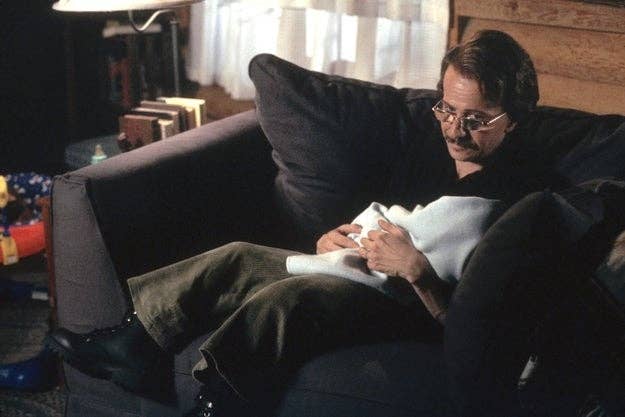
Reality Check Prod./ Courtesy: Everett Collection
Producer Chris Hanley defended the decision, saying, "It was a story that was intended to support everybody in the world no matter what size they were." Costar Peter Dinklage (who plays Oldman's character's best friend and actually does have dwarfism) later reflected on the film, admitting, "There was some flak. 'Why would you put Gary Oldman on his knees? That's almost like blackface.' And I have my own opinions about political correctness, but I was just like, 'It's Gary Oldman. He can do whatever he wants.'" Dinklage had more of an issue with the way the film was edited and marketed, which he felt contributed to a view of people with dwarfism as "cutesy. "It was sort of an amazing idea for a movie, but the result [of the new cut] was what we were fighting against — the cutesiness of little people."
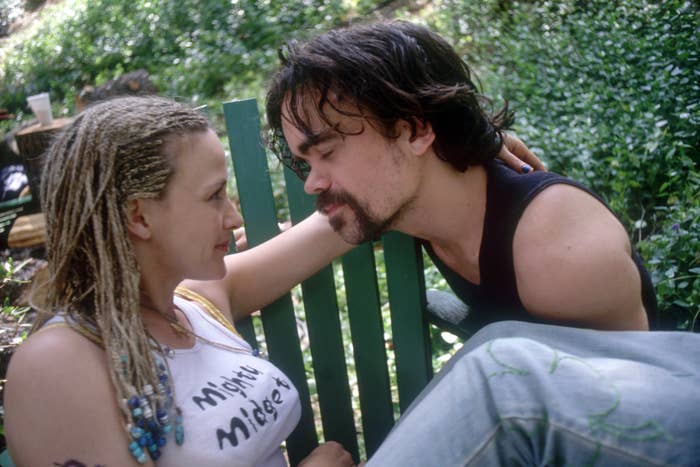
Reality Check Prod./ Courtesy: Everett Collection
It doesn't look like Oldman ever spoke about the controversy, but I think it's pretty safe to say he probably should've stayed away from this particular project.
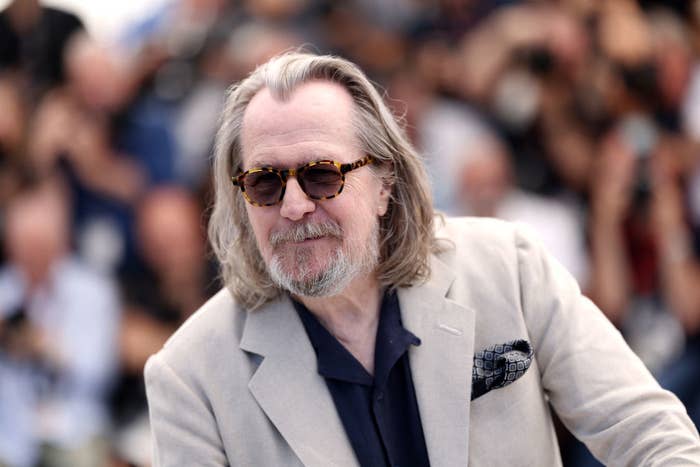
Pascal Le Segretain / Getty Images
2. C. Thomas Howell also should've stayed far, far away from Soul Man, in which he portrays a white character who dons blackface in order to qualify for a Harvard scholarship meant for Black students. Through the process, he learns that racism exists and falls for the Black single mother who was actually supposed to get the scholarship...who inexplicably gives him another chance after she realizes he was white all along (because he stood up for her when someone said a racist joke in front of them).
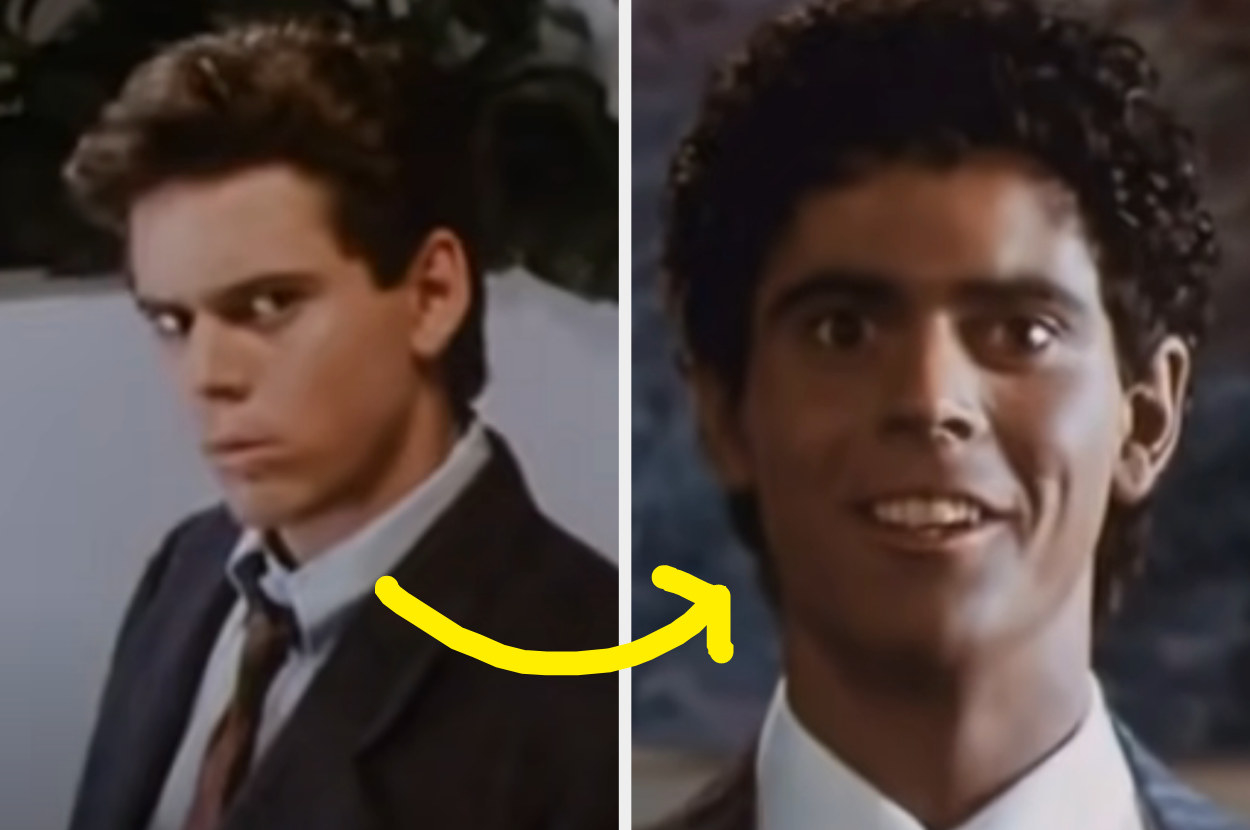
New World Pictures
Surprisingly, Howell has stood by this film. In a 2013 interview, Howell said he'd recently rewatched the film and was "shocked at how truly harmless that movie is, and how the anti-racial message involved in it is so prevalent. I still don't understand, and I guess this is just my own ignorance, the fact that certain people really hate the whole blackface idea, because this isn't a movie about blackface," Howell continued. "It's not like I'm Al Jolson in blackface singing 'Mammy.' ... It's 180 degrees from that. It's an innocent movie, it's got innocent messages, and it's got some very, very deep messages. And I think the people that haven't seen it that judge it are horribly wrong."

Jason Mendez / Getty Images
He also called it "an important movie" and compared its use of blackface to Robert Downey Jr.'s character in Tropic Thunder, saying that was accepted. He also pointed out that Soul Man had a much more prevalent anti-racism message that even taught him about the prevalence of racism.
3. Speaking of Tropic Thunder — Robert Downey Jr. memorably appeared in blackface in the role of Kirk Lazarus in the film. Though he admitted to having reservations about taking the role, Downey Jr. called it an opportunity to "be Black for a summer in my mind." However, Downey Jr. claimed that because it was criticizing blackface, it was okay. In portraying an actor who is donning blackface, he intended to "hold up to nature the insane self-involved hypocrisy of artists and what they think they're allowed to do on occasion."
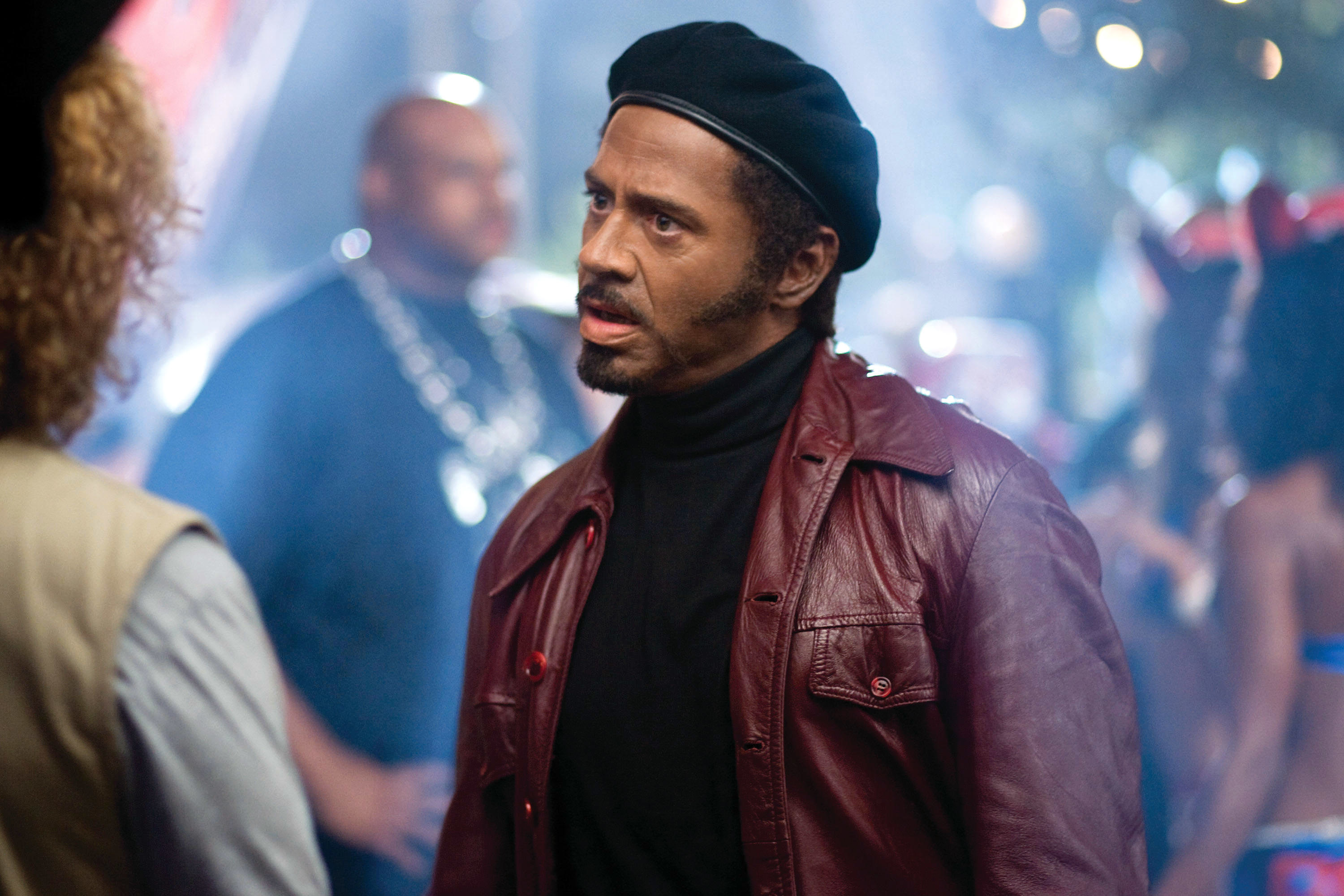
DreamWorks / courtesy Everett Collection
He continued, "It was impossible to not have it be an offensive nightmare of a movie. 90% of my Black friends were like, ‘Dude, that was great.' I can’t disagree with [the other 10%], but I know where my heart lies. I think that it’s never an excuse to do something that’s out of place and out of its time, but to me, it blasted the cap on [the issue]. I think having a moral psychology is job one. Sometimes, you just gotta go, ‘Yeah, I effed up.’ In my defense, Tropic Thunder is about how wrong [blackface] is, so I take exception.”
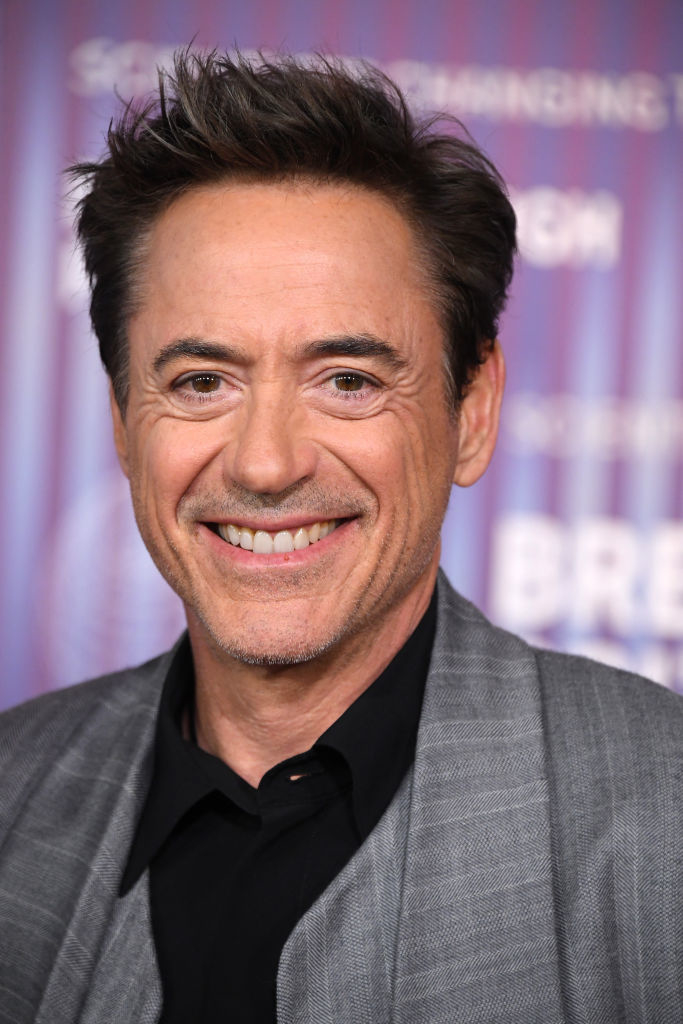
Steve Granitz / FilmMagic via Getty Images
4. Mickey Rooney as Mr. Yunioshi in Breakfast at Tiffany's is one of the most infamous examples of yellowface — not just because he is a white actor, but because the character he portrays is an incredibly racist caricature.
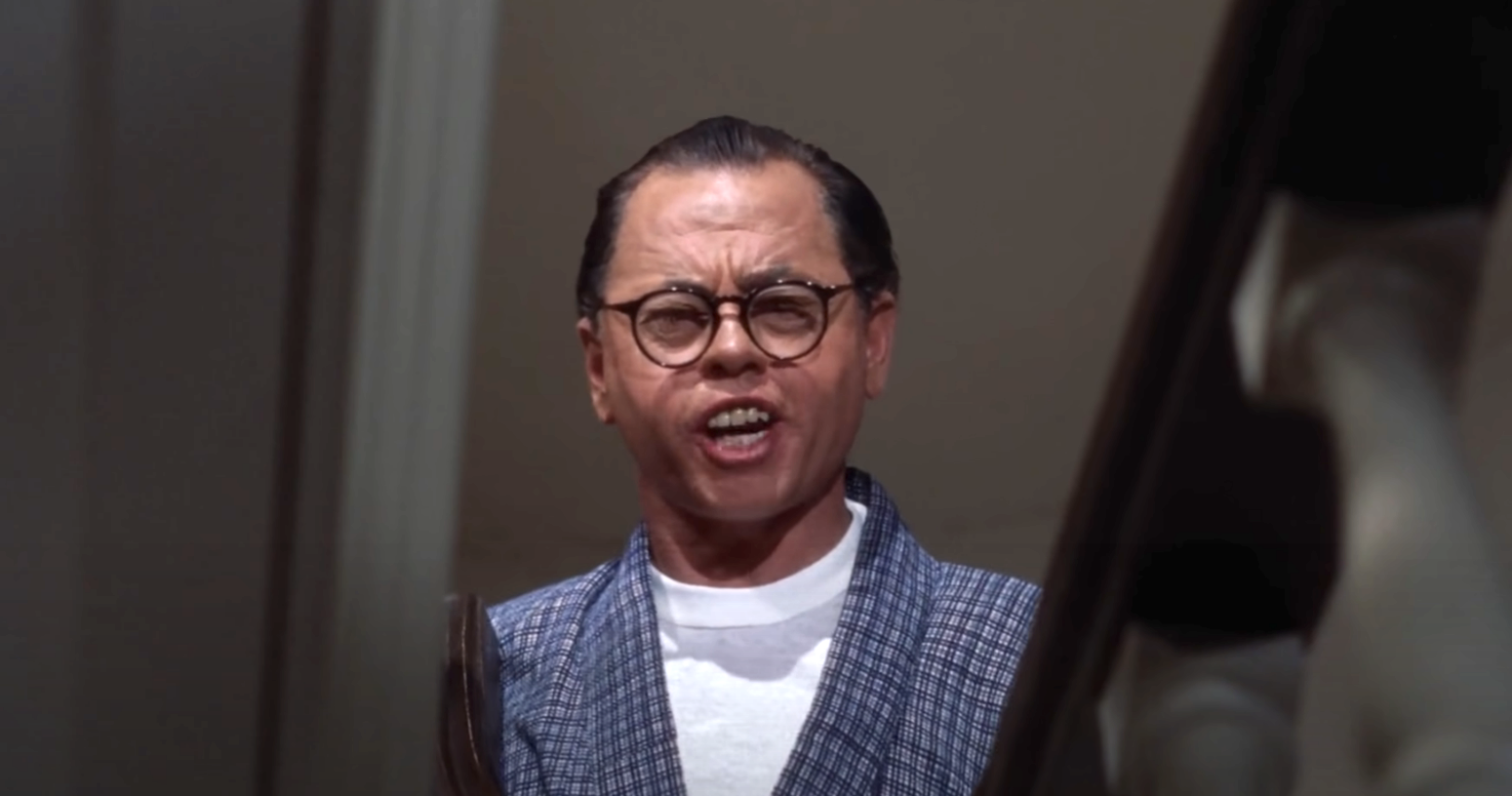
Paramount Pictures
Rooney also stood by his casting. In response to backlash decades later, he said, "I wouldn't offend any person, be they Black, Asian, or whatever," and that his performance was "overboard" because that's what he was hired to do. "Never in all the more than 40 years after we made it — not one complaint. Every place I've gone in the world, people say, ' ... you were so funny.' Asians and Chinese come up to me and say, 'Mickey, you were out of this world.'" He did say if he'd known people would be so offended, he wouldn't have done it and that the criticism "broke his heart" — but instead of apologizing, he said he "forgave" those that didn't like it and felt bad for "the people taking offense."
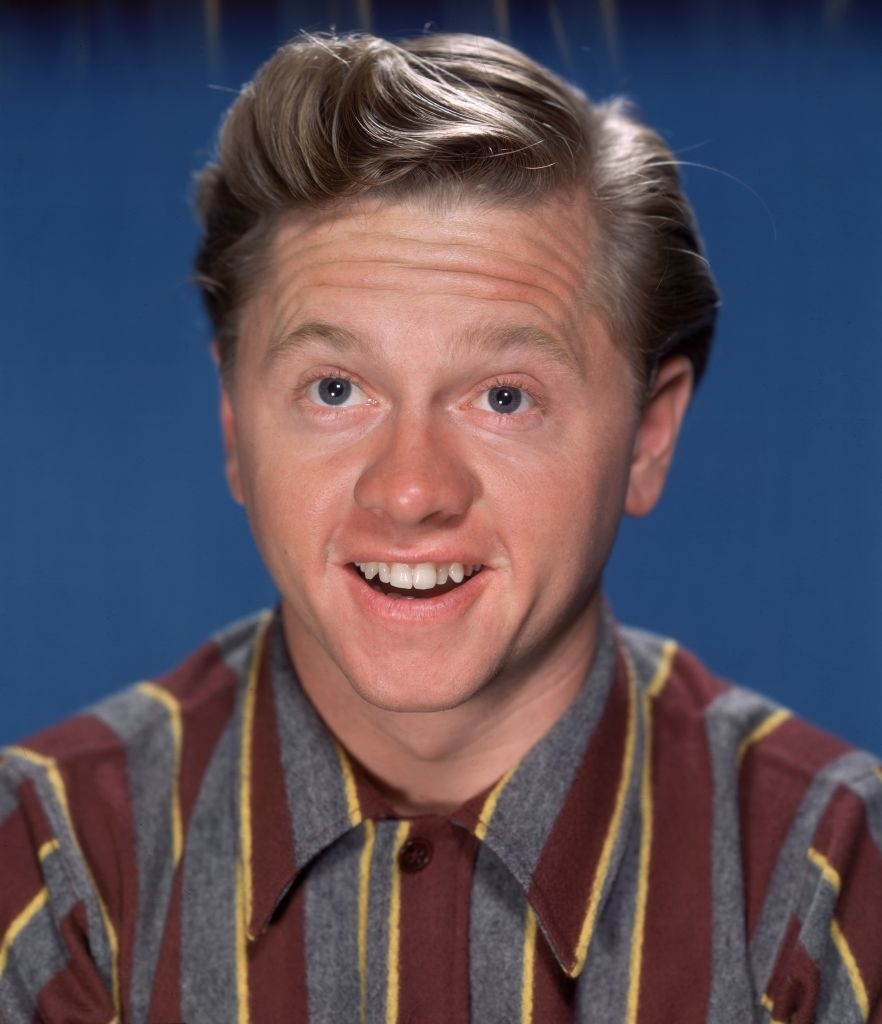
Hulton Archive / Getty Images
5. In another awful example of yellowface, Sean Connery masqueraded as an Asian man in the Bond film You Only Live Twice. In the film, Connery goes undercover as Japanese. The film contains other problematic stereotypes and comments, like when Bond replies that he'd like to retire in Japan after being told, "In Japan, men come first, women come second." Connery does not appear to have expressed regret for this film, which now has content warnings when it is screened.
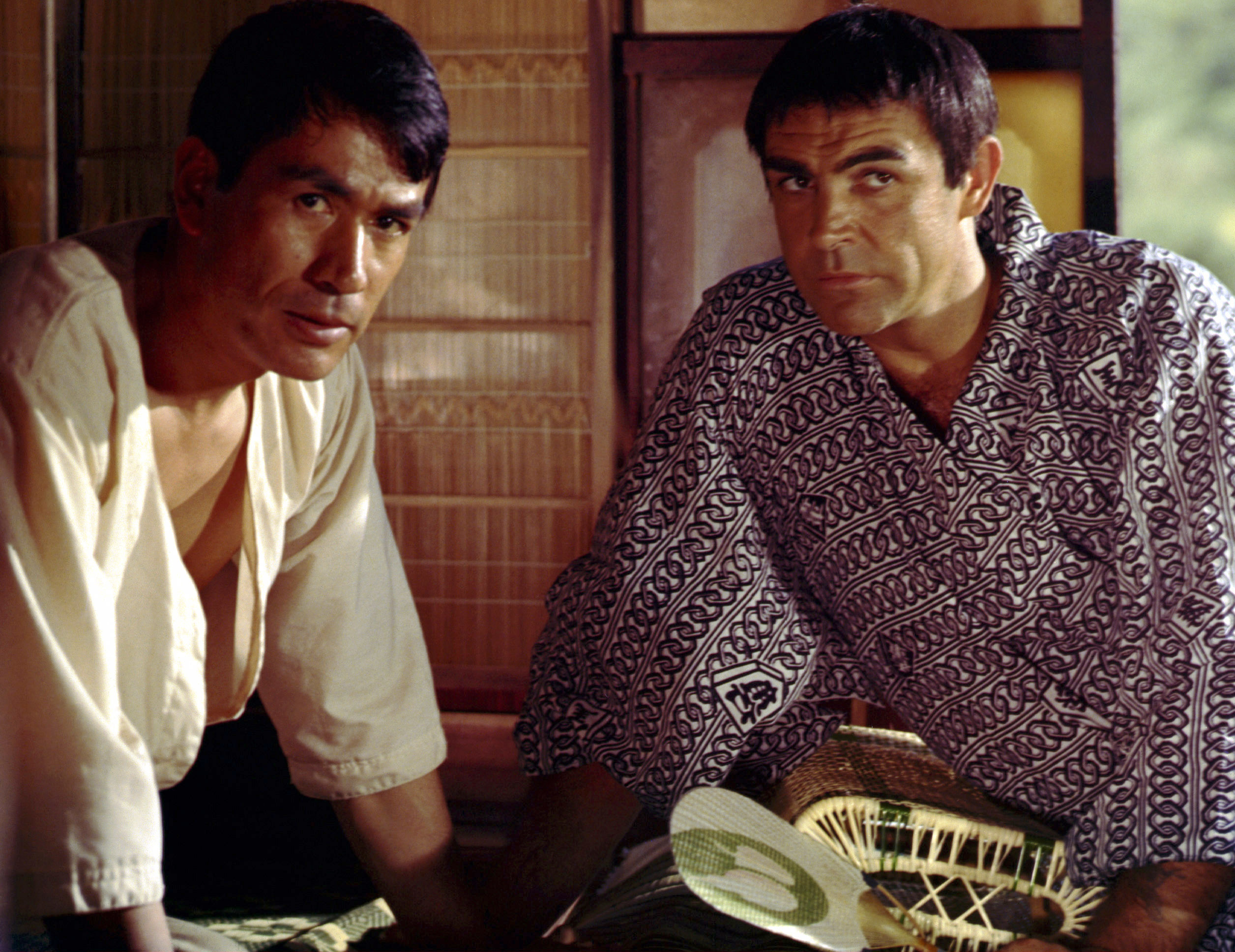
United Artists/Courtesy Everett Collection
6. Another comedian who has sparked backlash for racial caricatures is Rob Schneider, who has appeared as a multitude of different races in films like 50 First Dates, Click, I Now Pronounce You Chuck and Larry, and You Don't Mess With The Zohan. Schneider hasn't specifically addressed any of these roles, but after backlash over a recent stand-up set, he defended his controversial jokes as free speech. "People get upset about things now. And that's OK," Schneider said. "I think the more challenging the comedy is and society is, the more interesting the stand-up and art is going to be. When everything's smooth, art is boring. So the '90s could have been kind of boring, but this is a good time now, and it's a challenging time."
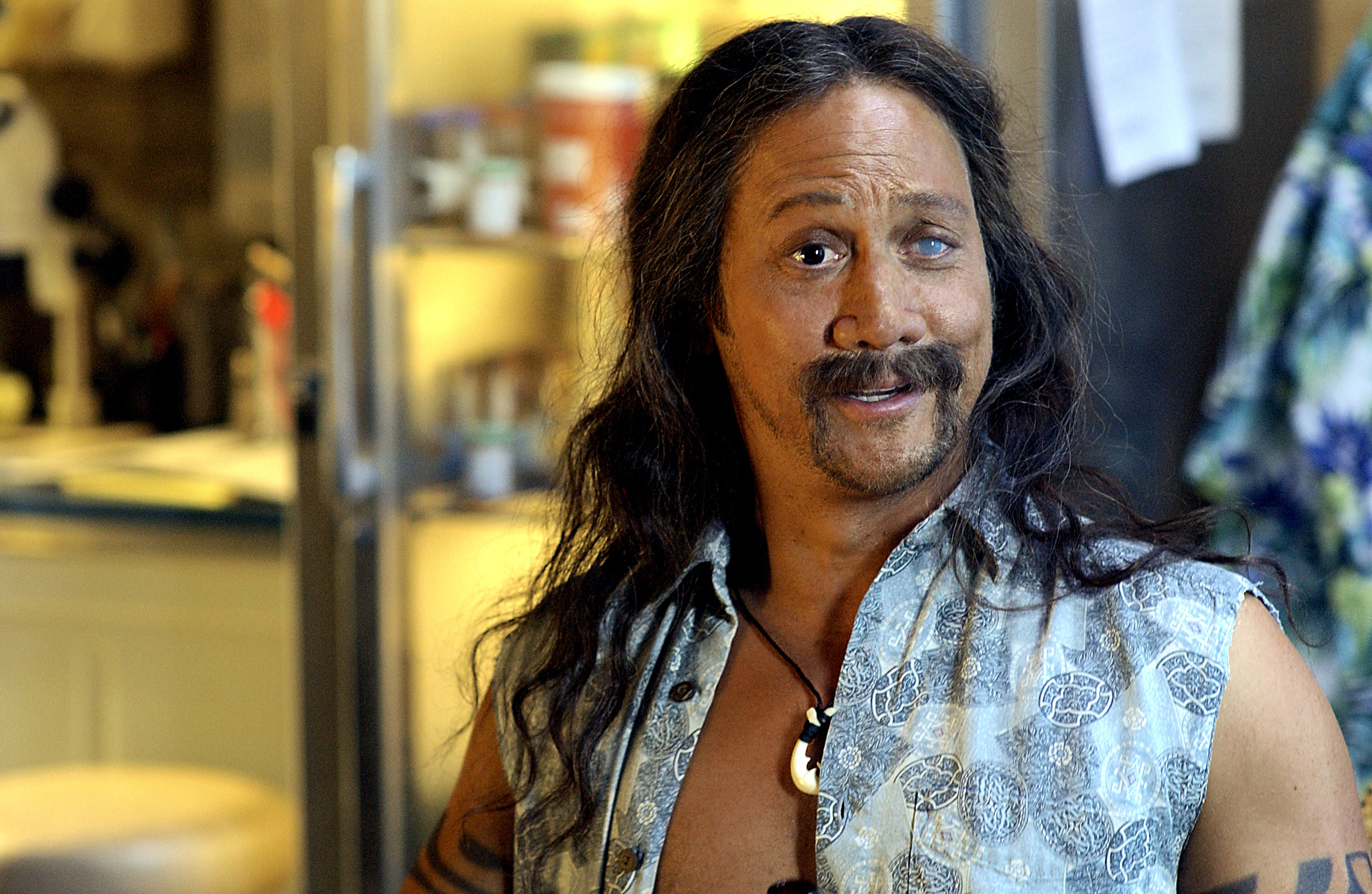
Columbia / courtesy Everett Collection
Schneider is half Flipino, half white, and has played Native American, Hawaiian, Mexican, and Middle Eastern characters.
7. In another movie that could never be made today, Steve Martin played an adopted white son of a Black family in The Jerk. His character believes he is the couple's biological son, and at one point, he shouts to a white man, "Sir, you are talking to a n****!"
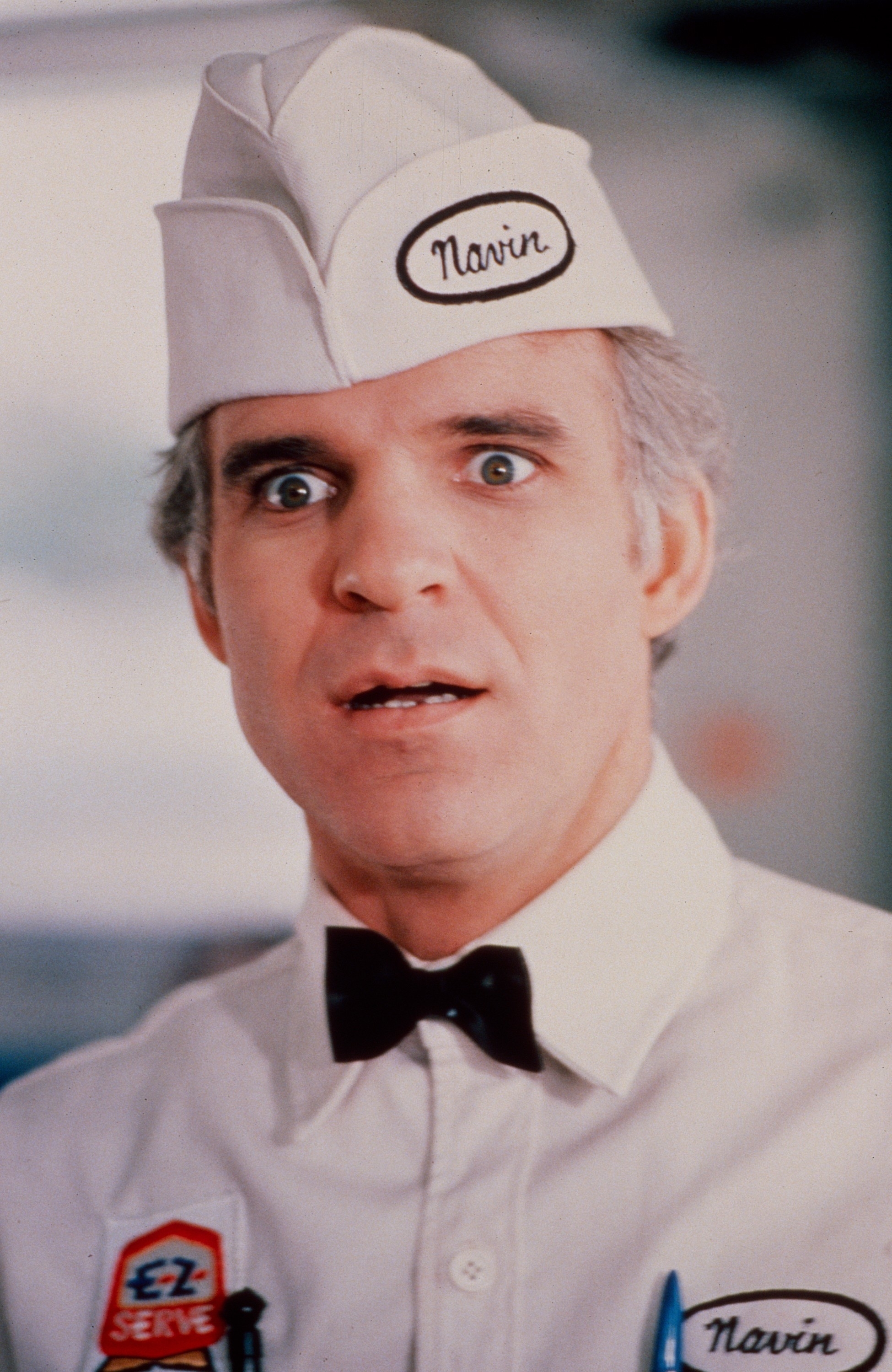
Universal / courtesy Everett Collection
When asked about the film in 2015, Martin replied, "I haven’t looked at The Jerk in a long time. But looking back, everyone was treated with such respect, and we had that fabulous opening with Sonny Terry and Brownie McGhee singing on the porch, two very well-known blues artists. You might get a kind of knee-jerk reaction, but it would be hard to get a verdict in court against it."
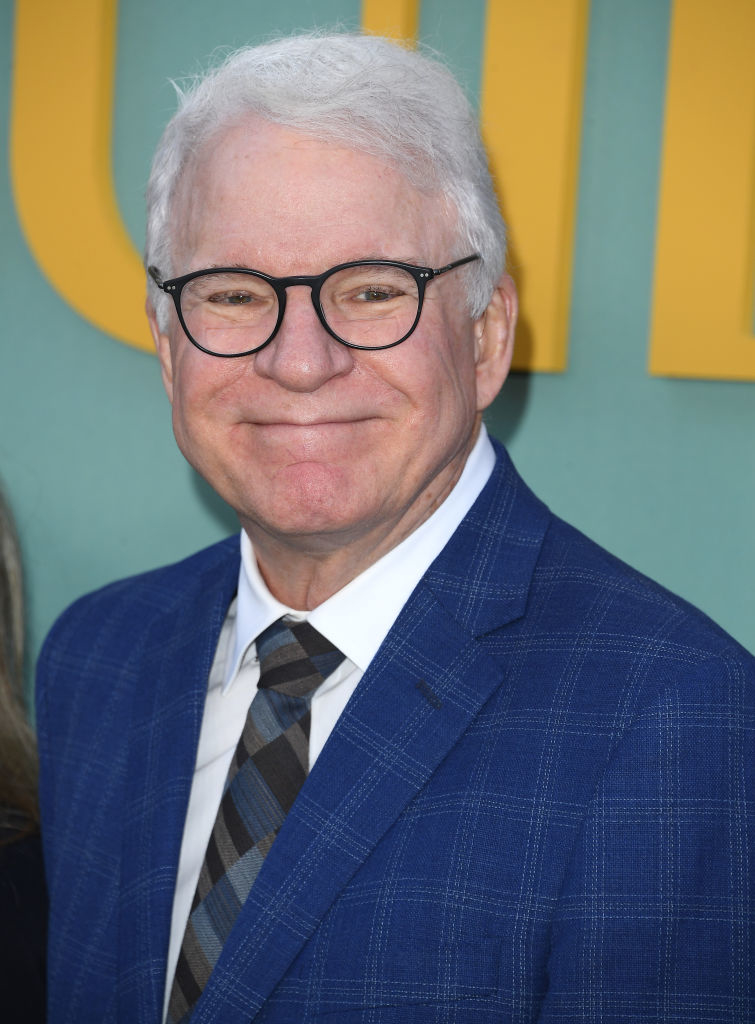
Steve Granitz / FilmMagic via Getty Images
8. Sam Claflin, a nondisabled actor, faced backlash after being cast as the tetraplegic character, Will, in Me Before You. In addition, the movie ended with the really problematic message that a happy ending for a tetraplegic person would be to die, as this is what Claflin's character chooses. The message was heavily criticized by disability rights groups and activists.
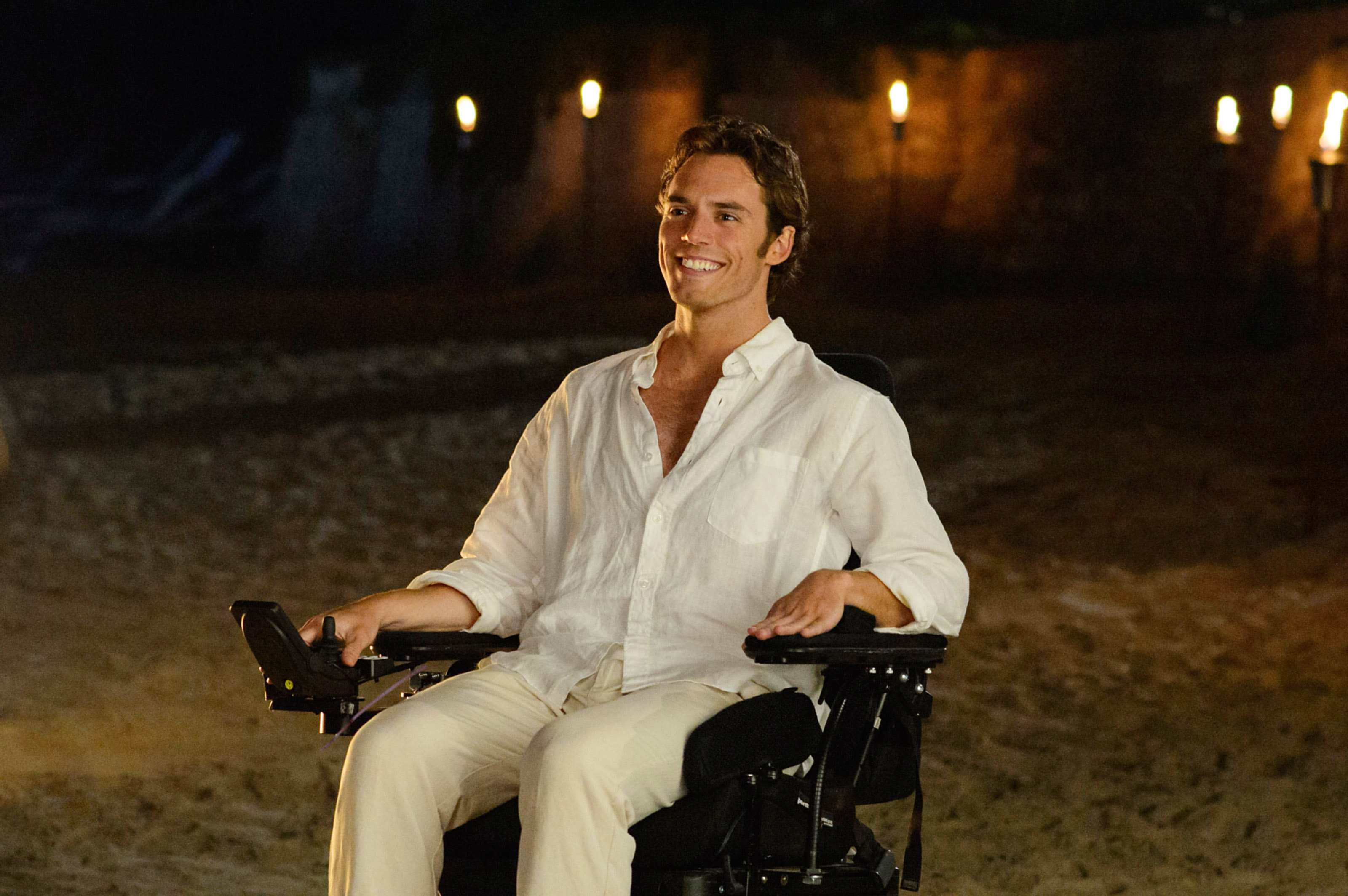
Alex Bailey / New Line Cinema / courtesy Everett Collection
Claflin does not appear to have addressed the controversy, but director Thea Sharrock called it "a brave ending" and "the more interesting way" to tell the story. She called Claflin's character's choice personal and pointed out that the book the film was based on has the same ending. "it's an incredibly serious and important subject," she acknowledged, though she also said fans were fundamentally misunderstanding the film's message. "It's a fictional story about how important the right to choose is," she said. "The message of the film is to live boldly, push yourself, don’t settle."

Pascal Le Segretain / Getty Images
9. Dance Moms star Maddie Ziegler also came under fire for portraying a character with a disability despite not having one herself when she starred in Music as a nonverbal autistic character. Reviews noted that her performance was like a caricature of an autistic person and that her character mostly served as a "cheap prop in a dumb modern fairy tale about the able-bodied woman who uses her as a catalyst for her own self-growth." The movie also faced criticism for its portrayal of the use of restraint on autistic people, which is not recommended and can be dangerous and even fatal.
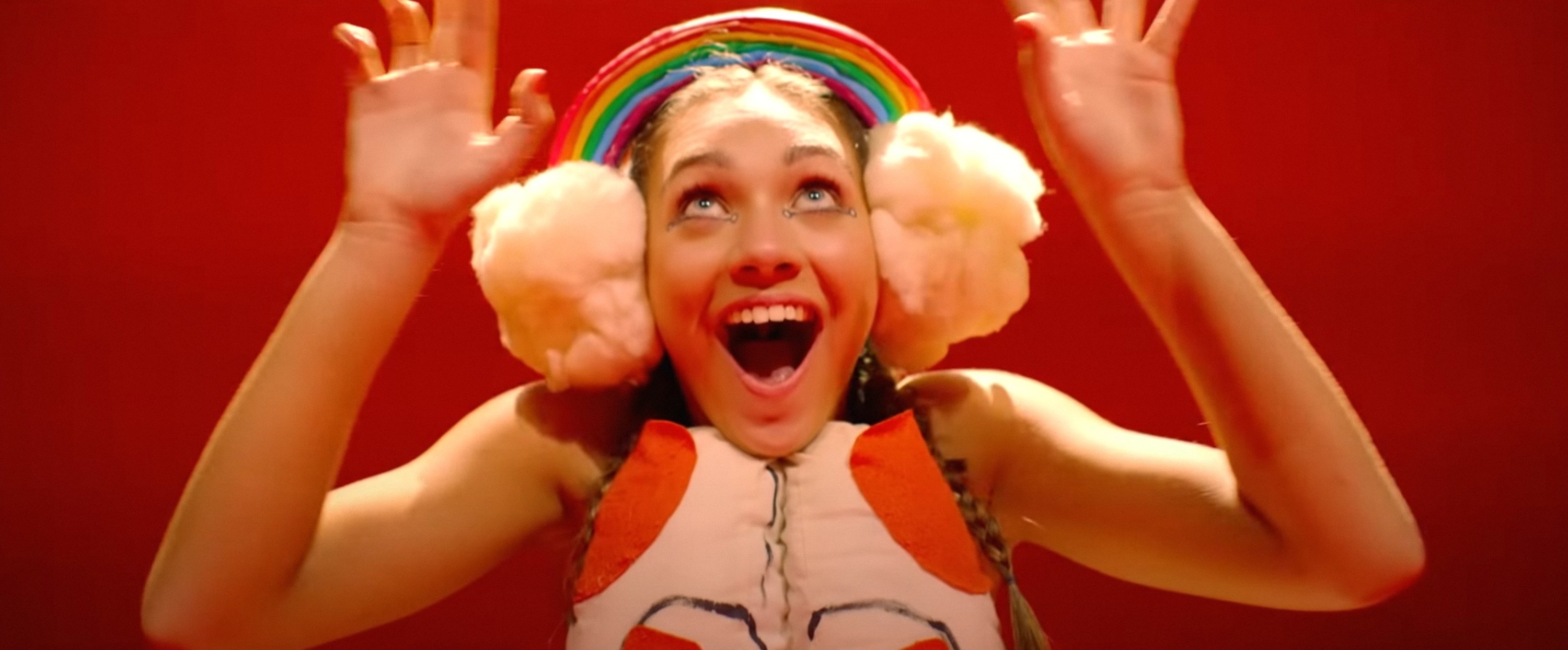
Vertical Entertainment /Courtesy Everett Collection
Ziegler, who was a teenager at the time, later said, "I understand why people would want someone who’s actually on the spectrum with autism to play this character. But in terms of the dance sequences, I think that’s why Sia chose me to bring the dream world to life. It was all [made] with good intentions and with a good heart."
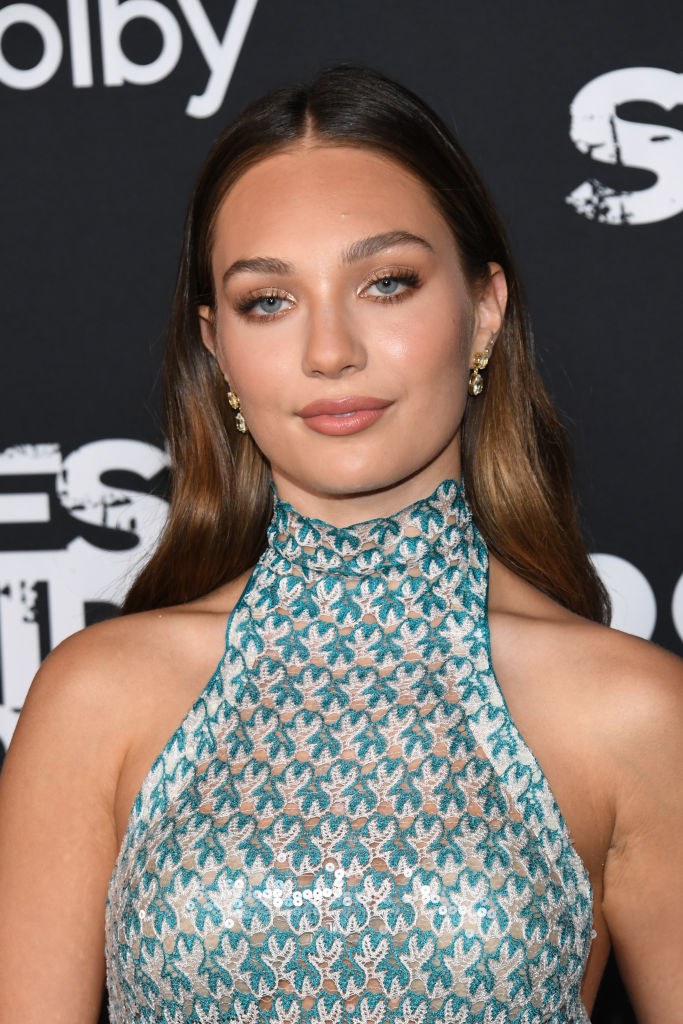
Jon Kopaloff / WireImage via Getty Images
Sia, who created the film and cast Ziegler, responded more extensively to criticism and faced further backlash. "I can't do a project without her [Ziegler]," Sia said. When an actor with autism called her out for not casting someone like her, Sia replied, "Maybe you're just a bad actor." She also claimed she had hired 13 other neuroatypical actors in other roles and that she "actually tried working with a beautiful young girl, nonverbal on the spectrum, and she found it unpleasant and stressful." Sia later apologized for her problematic depiction and then deleted her Twitter account.
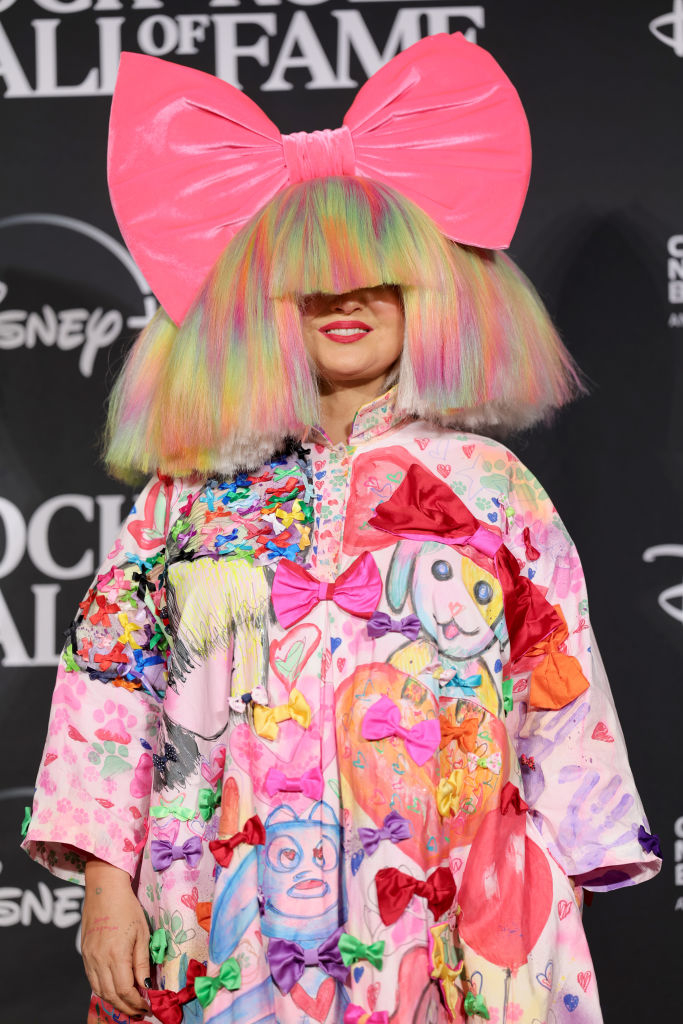
Michael Loccisano / WireImage via Getty Images
10. Radio tells the story of a high school football coach who takes a local boy with an intellectual disability under his wing in the 1970s. The story is meant to be heartwarming, but ends up being massively cheesy and also pretty problematic — in part due to Cuba Gooding Jr., who plays Radio as a caricature. Even at the time, reviews called Gooding Jr.'s portrayal offensive and exploitative. It doesn't appear that Gooding Jr. has spoken about the role in recent years or expressed any regret over it.
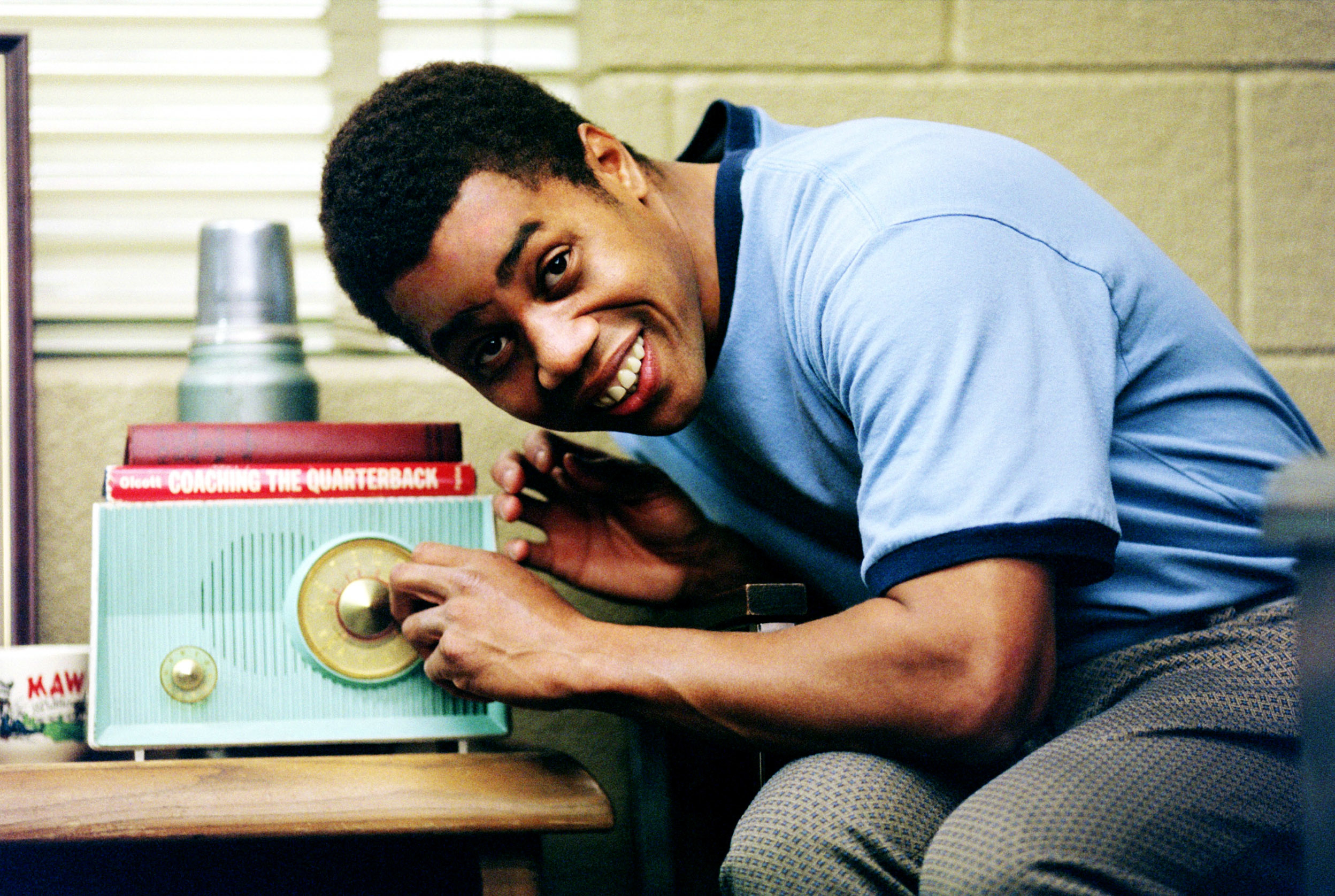
Columbia / courtesy Everett Collection
11. The Blind Side has come under fire in recent years for its white savior narrative, especially after the real-life Michael Oher claimed the Tuohy family did not adopt him as portrayed in the film but manipulated him into a conservatorship and profited off of him. Star Sandra Bullock — who won an Academy Award for the role — does not appear to have spoken out over the controversy of her role as the "savior" of the film, though there were reports she was "heartbroken" over learning the truth about Oher. Quinton Aaron, who played Oher, also called the allegations heartbreaking and shocking, though he defended Bullock, who was facing major backlash for her role in the film. "Sandra didn't create this, you know what I mean? She's an actress who got paid to do a job."
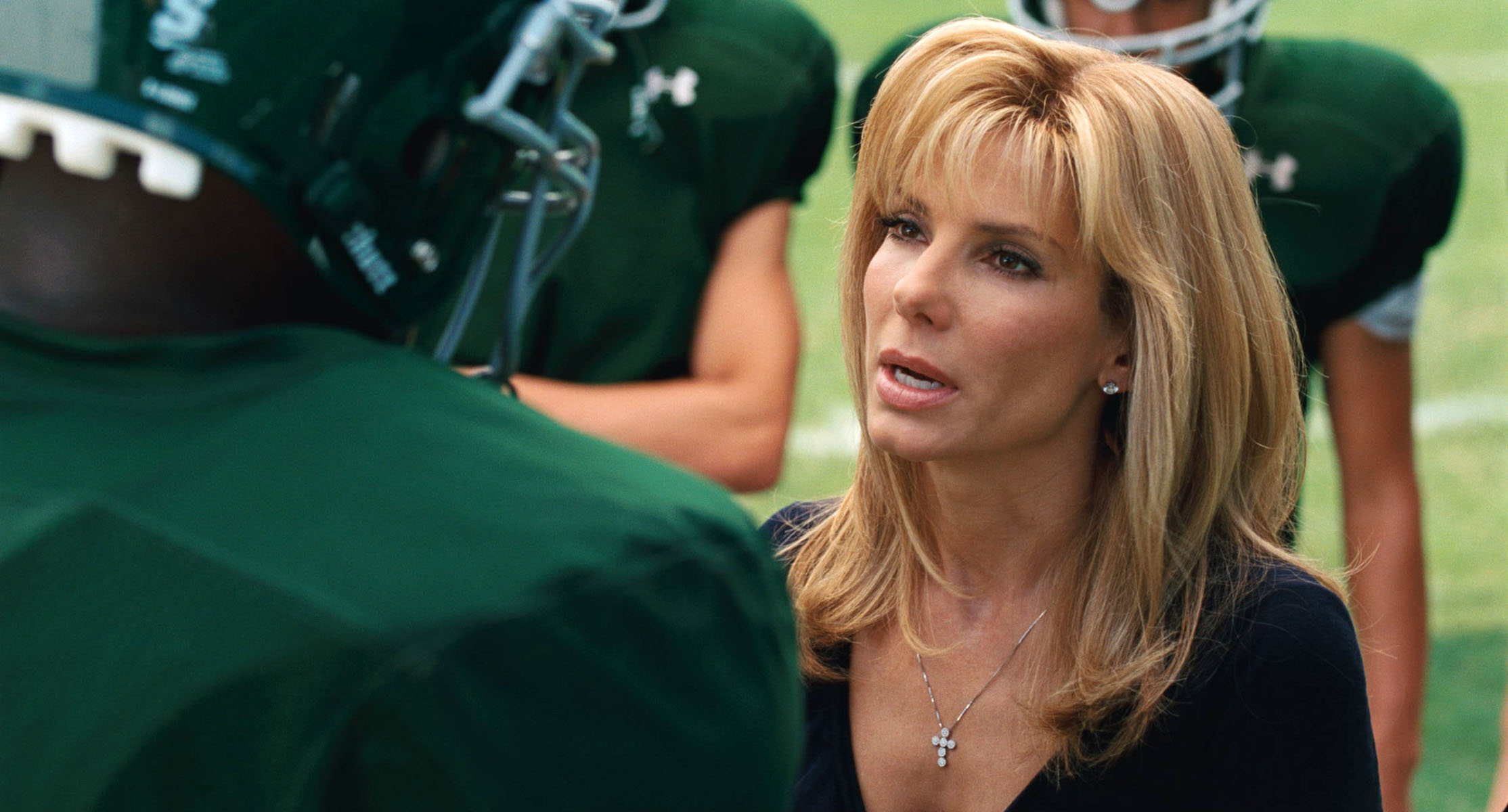
Ralph Nelson/Warner Bros./Courtesy Everett Collection
Aaron does not appear to regret the film, either. "The Blind Side has been such a beacon of hope for people," he told EW. "It's heartbreaking because these are people that I've met, these are people that I've grown to respect and get to know for the period that we did this project that saved my life, and to hear this come out like this in the media, it is just — I just pray that the two can meet some kind of resolve to where everyone can be made whole and it doesn't completely destroy what they built over the years, because aside from everything, aside from the movie, aside from this or that, they were a family."
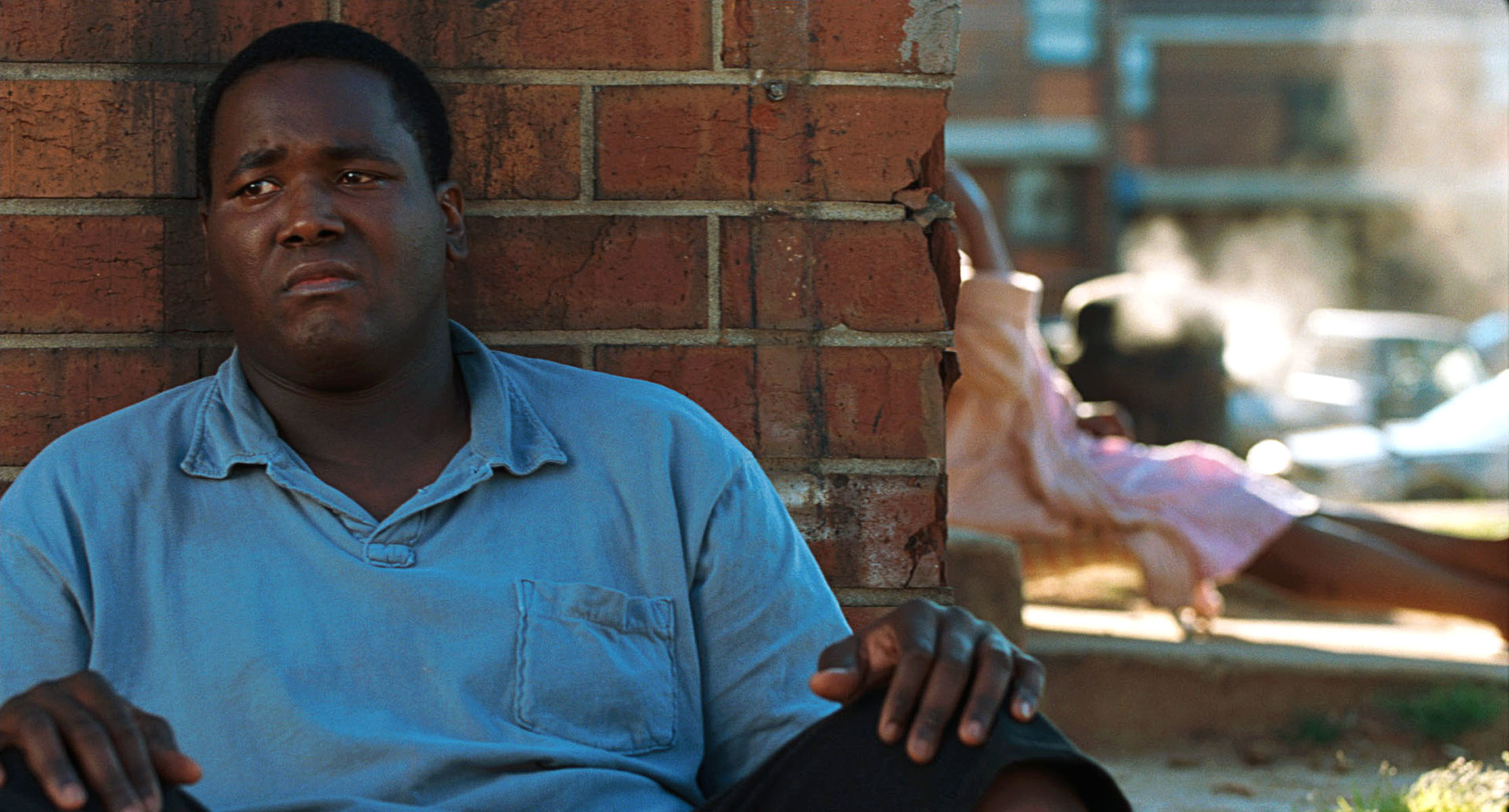
Ralph Nelson/©Warner Bros./Courtesy Everett Collection
12. Hilary Duff came under fire for starring as the late actor Sharon Tate in the horror movie The Haunting of Sharon Tate. Tate, along with her unborn child and four friends, were horrifically murdered by followers of Charles Manson back in the late '60s. Tate's sister called the film, which featured Duff ( as Tate) having visions of her upcoming murder, "extremely exploitative and socially irresponsible," and reviews agreed.
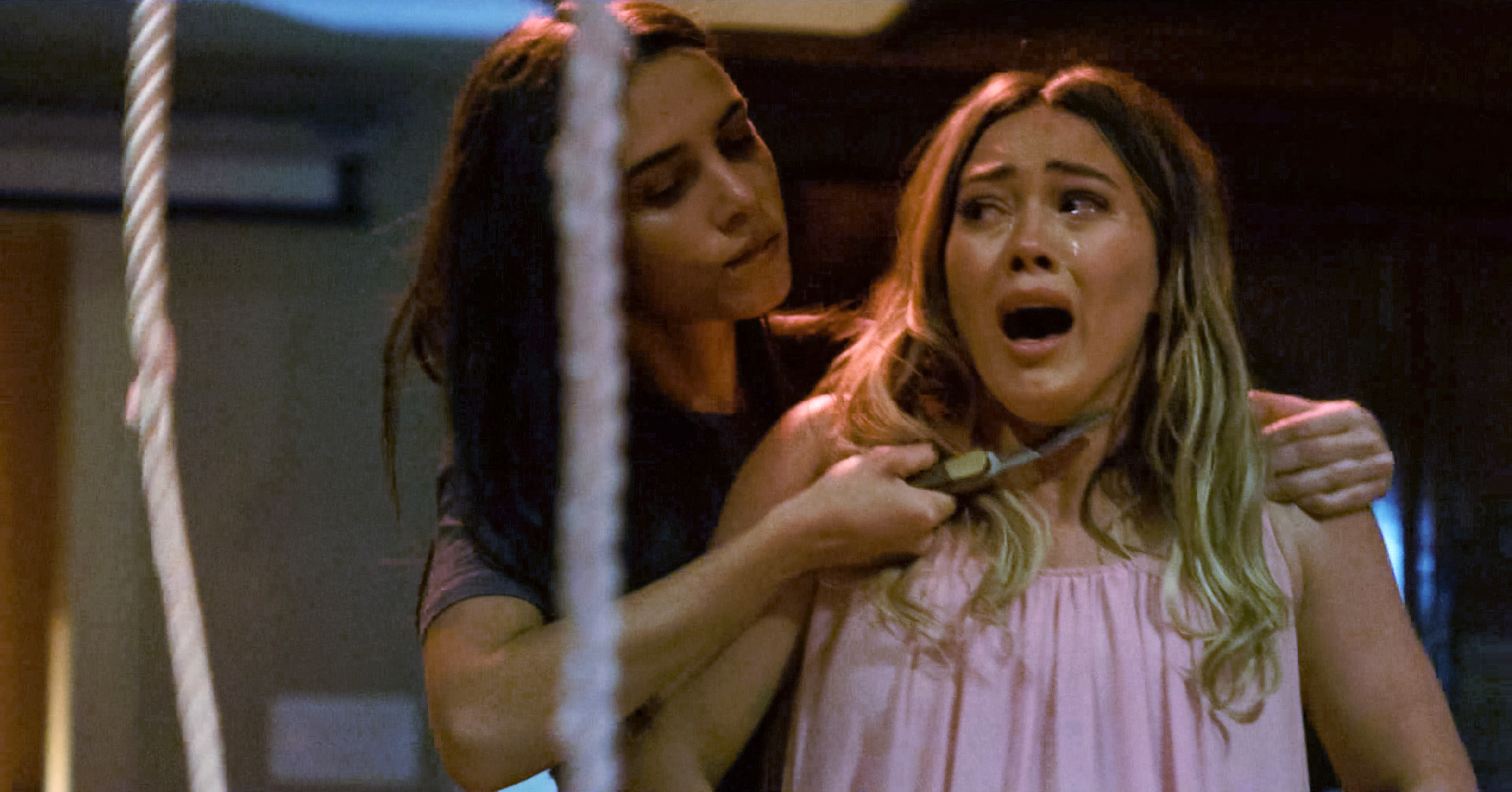
Saban Films / courtesy Everett Collection
Duff did not reply to criticism (though she sparked further backlash for an Instagram post that seemed to be about Tate's baby), but writer-director Daniel Farrands acknowledged it: "I get it. I am not one to tell her [Tate's sister] or any of these people how they should feel…but I do hope on some level that people realize that this was made in honor of the victims." Ultimately, he said, "I wanted to do a story that would change the narrative so that the victims would be able to rise up and take their power back, if you will, from their would-be killers."
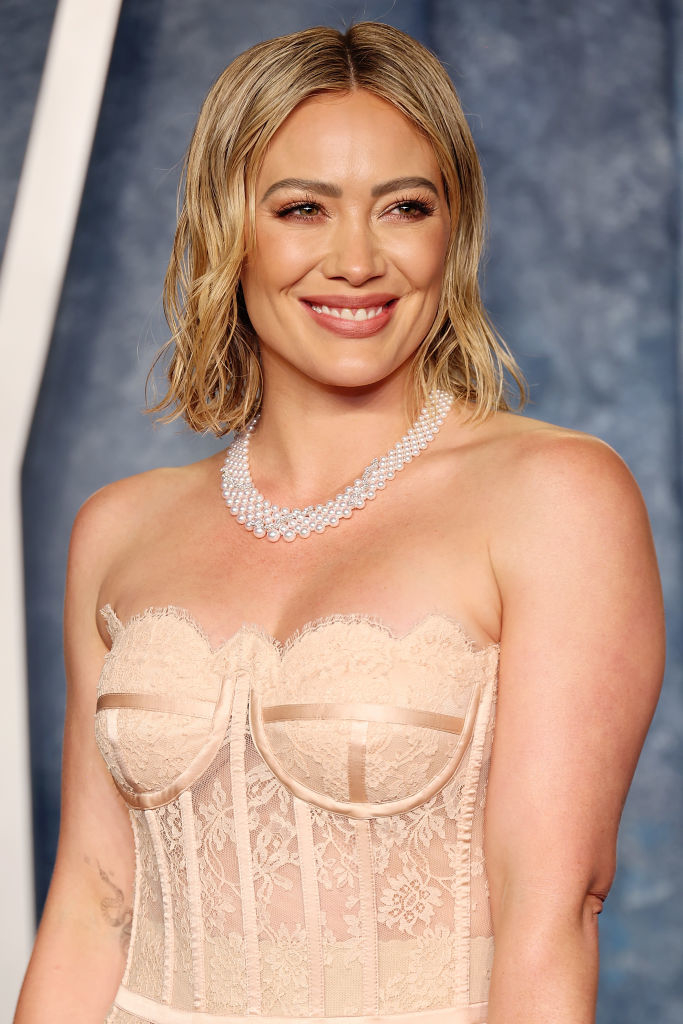
Amy Sussman / Getty Images
13. Even though the criticism was not directed at the role itself being offensive, Scarlett Johansson's casting in Ghost in the Shell caused major backlash back in the 2010s. Johansson, a white actor, was cast as Major Mira Killian / Motoko Kusanagi in the film, which was based on a Japanese manga. The controversy was compounded by reports that Paramount and Dreamworks were testing visual effects to make her look more Asian, though the studios denied the reports and said they'd done a test on an extra but scrapped it.
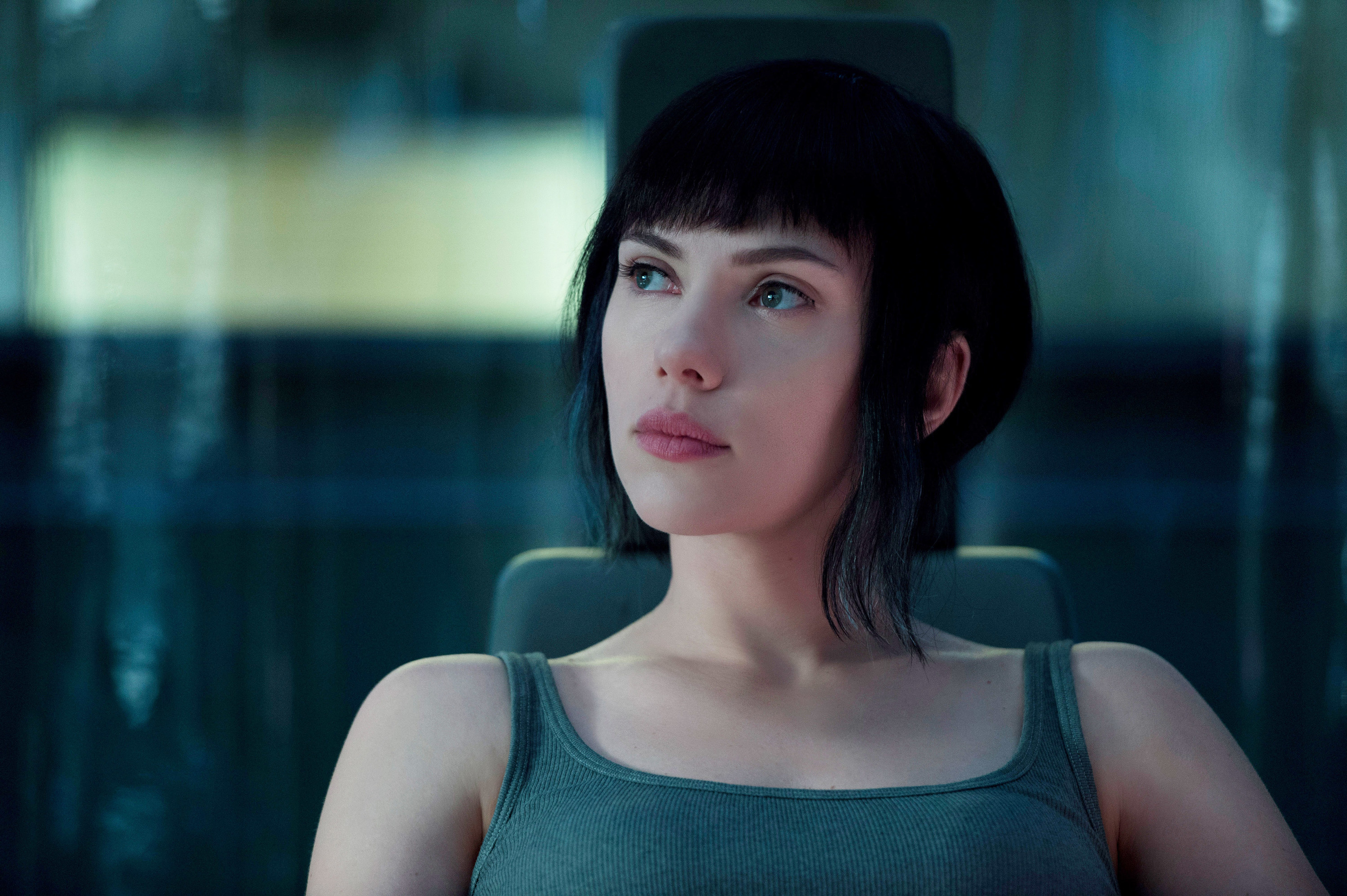
Jasin Boland / Paramount Pictures / Courtesy Everett Collection
Johansson responded to the criticism by saying, "I think this character is living a very unique experience in that she has a human brain in an entirely machinate body. I would never attempt to play a person of a different race, obviously."
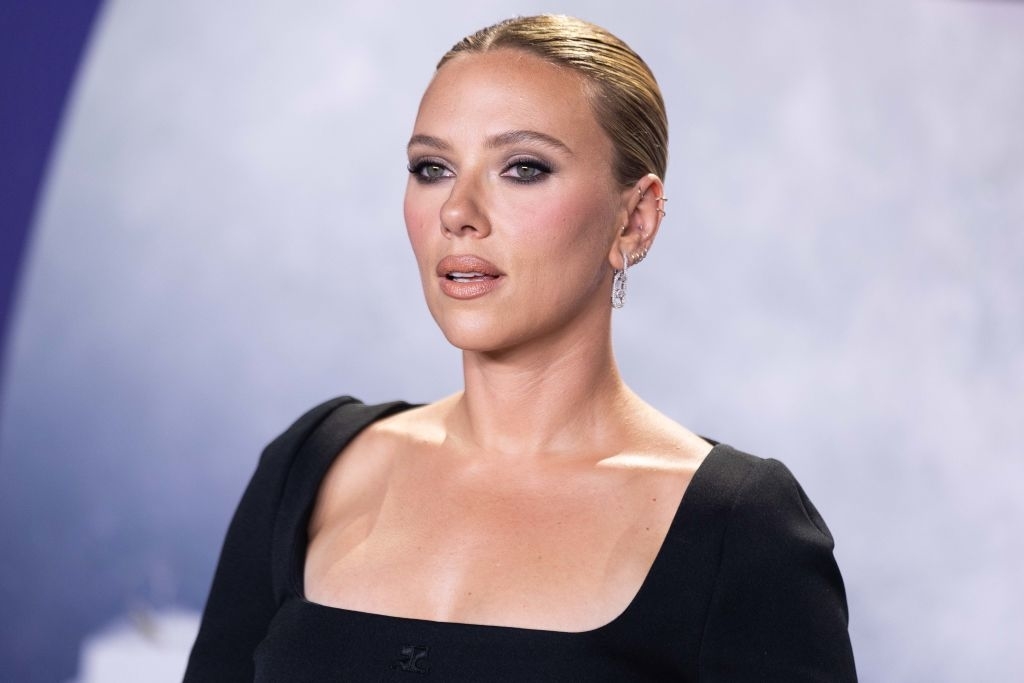
Patricia J. Garcinuno / Getty Images
14. Like Johansson, white actor Nat Wolff was cast in the lead role in an adaptation of the famous Japanese manga and anime Death Note. The fault doesn't lie purely with Wolff — the character was changed from Light Yagami to Light Turner, the location was also changed to Seattle, and none of the major characters were Asian. This was problematic in itself, whitewashing the entire series.
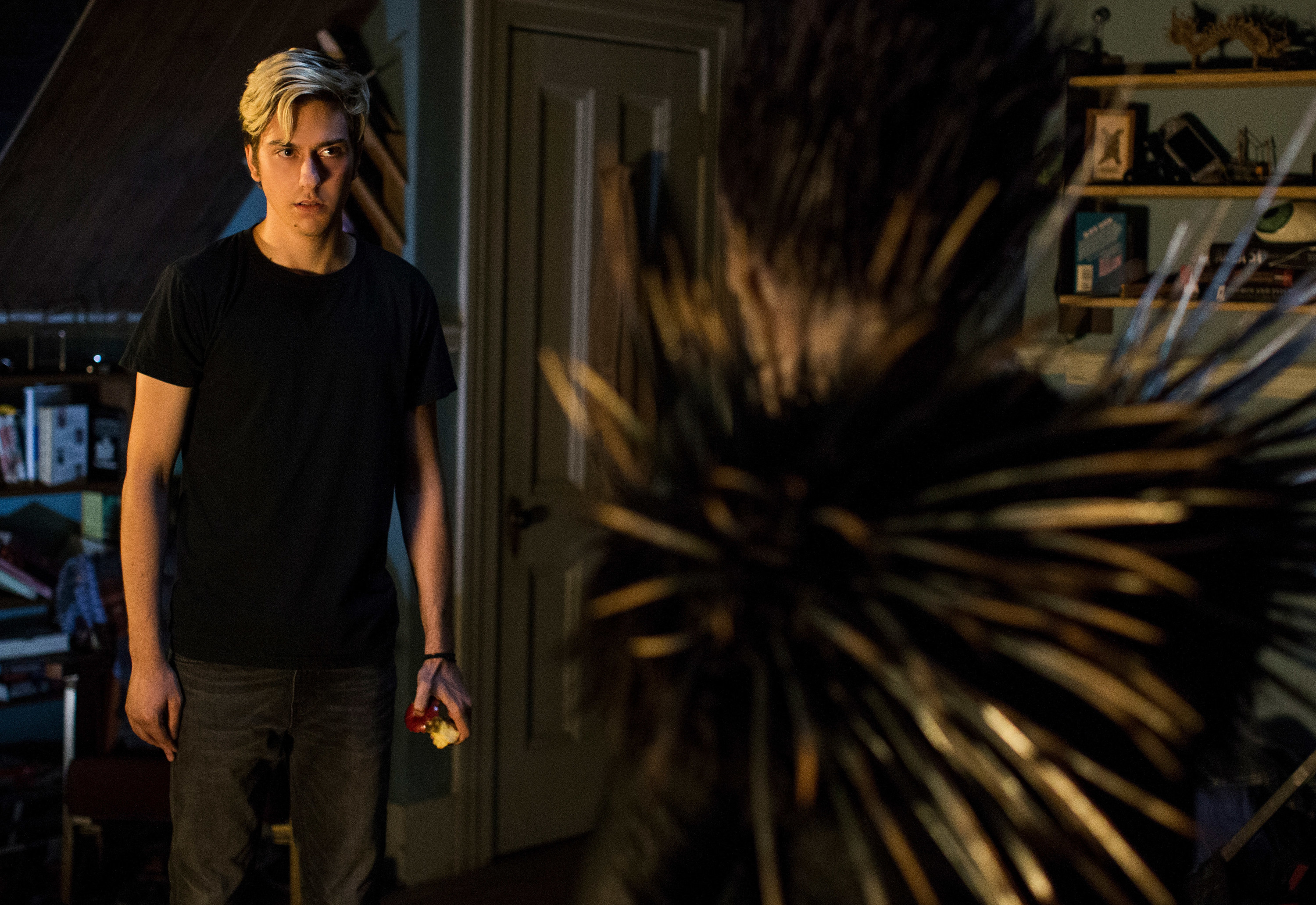
James Dittiger/ Netflix /Courtesy Everett Collection
IndieWire critic, Hanh Nguyen, wrote about how this affected the story: "This story, like many taken from the most popular anime or manga, has cultural significance to Japan. ... The concept of a death god is very common in Japanese lore, and therefore comes with a set of expectations or rules. Setting the story in Seattle and not having anyone Asian American play the role of Light Yagami, now Light Turner, removed that context." Fellow critic, David Ehrlich, agreed, "the vanilla treatment suggests that race/culture/identity isn’t important to this story. In which case, genre stylings notwithstanding, whiteness — and a lack of Japaneseness — become some of the only notable ways that this film differentiates itself from the previous iterations of this property. And that doesn’t sit well. Neither does the implication that whiteness is synonymous with the American experience."
Wolff did not appear to address criticism, though producer Roy Lee defended his casting and the overall "whitewashing" claims. "I can understand the criticism ... if our version of Death Note was set in Japan and [featured] characters that were Japanese-named or of Japanese ancestry," he said. But this version, he said, was "an interpretation of that story in a different culture, so there are going to be some obvious changes. Some people will like them, some people may not." Lee said they had to make the film "more appealing to the US or to the English-language market," which is why the location and characters were shifted.
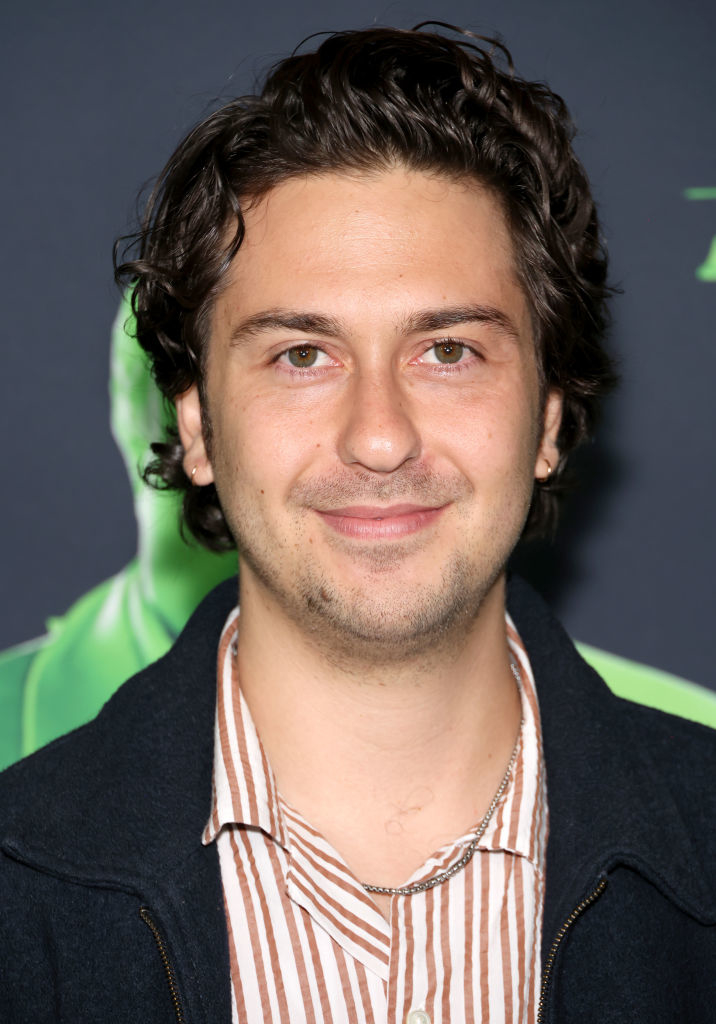
Monica Schipper / Getty Images
15. In yet another example of yellowface, Tilda Swinton was cast as the Ancient One in Doctor Strange, a character depicted in the comics as a Tibetan man. Swinton has not spoken on this, but Marvel boss Kevin Feige later admitted this was a mistake, saying they'd actually cast Swinton to avoid Asian stereotypes.
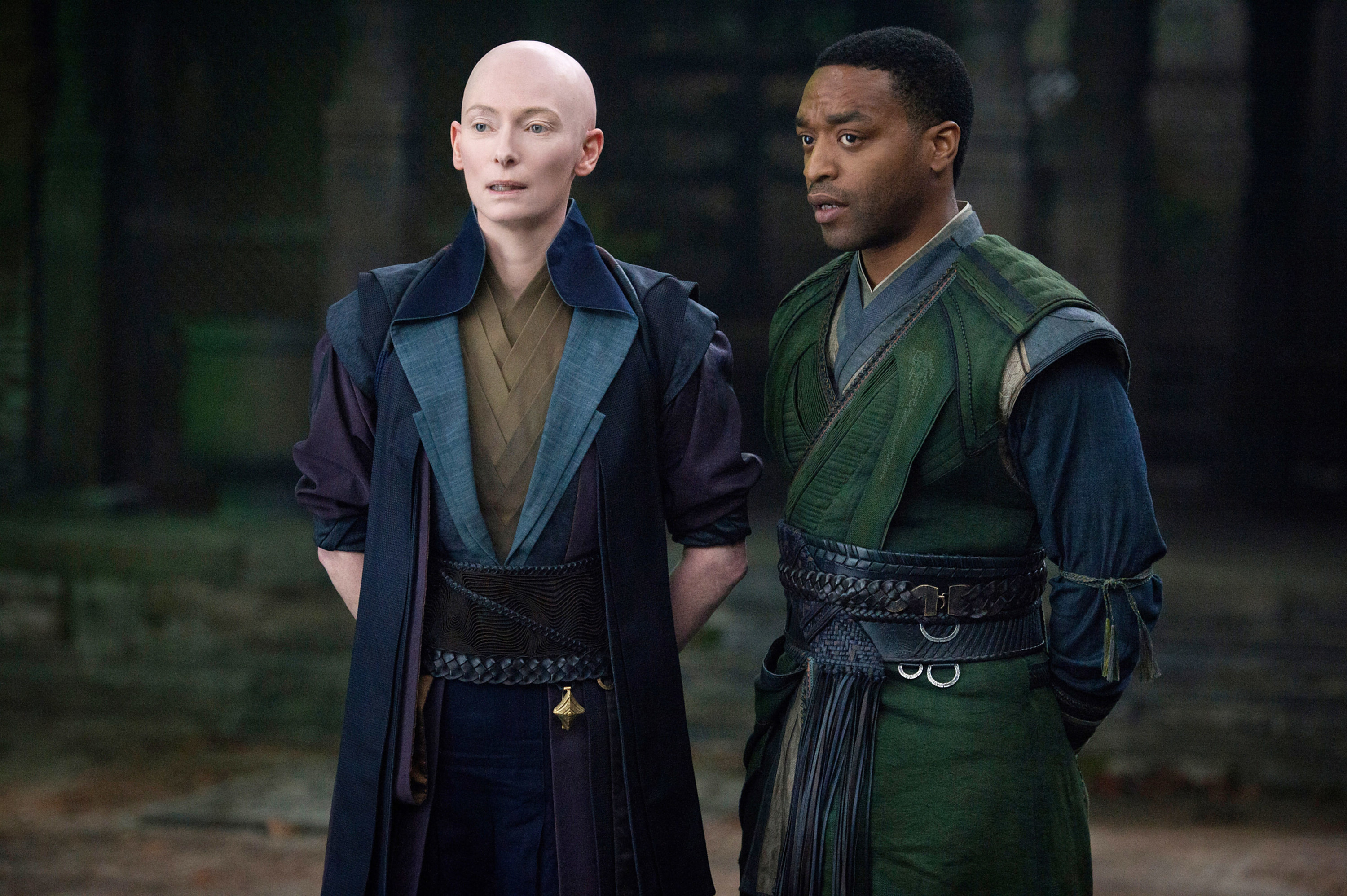
Jay Maidment / Walt Disney Studios Motion Pictures /Courtesy Everett Collection
"We thought we were being so smart and so cutting-edge," he said. “We’re not going to do the cliché of the wizened, old, wise Asian man. But it was a wake-up call to say, ‘Well, wait a minute, is there any other way to figure it out? Is there any other way to both not fall into the cliché and cast an Asian actor?’ And the answer to that, of course, is yes."

Jesse Grant / Getty Images for Disney
However, the screenwriter, C. Robert Cargill, claimed the role was changed because China would not show the film if it had a Tibetan character — though he later said he did not speak for Marvel, was not involved in casting, and that his statements were just "personal musings" about the character.
16. Eddie Murphy infamously played a multitude of characters in the massively panned film Norbit, including Norbit, Rasputia (a woman), and Mr. Wong (an Asian man). As critics pointed out after the film premiered, the movie was full of racist, anti-fat, and misogynistic stereotypes. One critic wrote, "It probably isn't possible for a single movie to reverse all social progress made since the civil-rights era, but Norbit, the latest broadside from Eddie Murphy, does its best to turn back the clock" while another wrote, "the plot relies on the idea that being fat also means you're a horrible bitch."
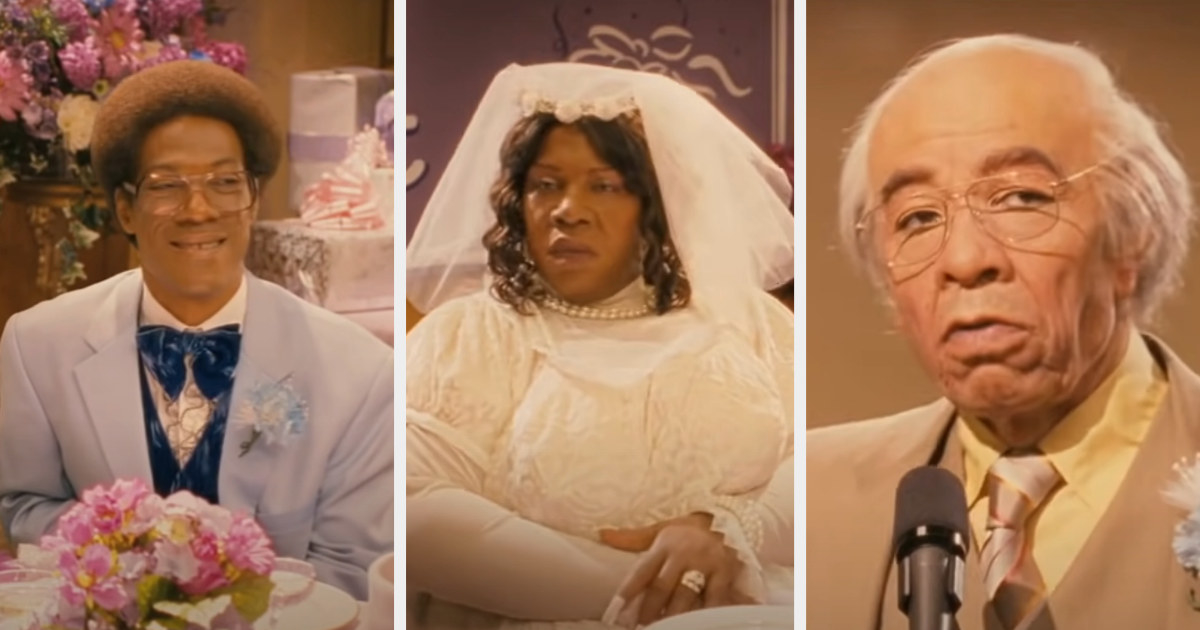
Paramount Pictures
Murphy later expressed regret for films made in that period of his career, but he didn't specifically address Norbit, and his regret seemed more related to the fact that he received Razzies for roles in Norbit and similar comedies. "I was making shitty movies," he said of that period. "I was like, 'This s--- ain't fun. They're giving me Razzies." He decided to take a break from the film industry, which lasted six years.
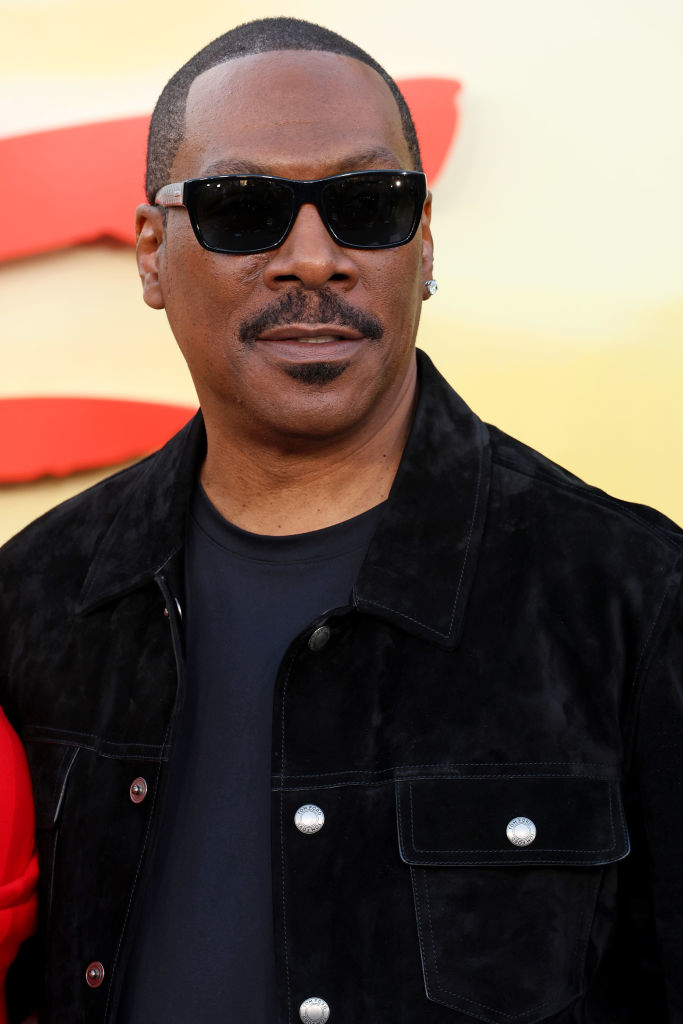
Kayla Oaddams / WireImage via Getty Images
17. Adam Sandler similarly played both Jack and Jill in Jack and Jill. Beyond even the whole gimmick of cisgender straight men in drag, Sandler's misogyny shows in the way his character is portrayed (not, as this review points out, a version of who Sandler himself might be as a woman, but instead an annoying shrew). Add in a speech impediment for humor's sake and some racist comments, and you've really got the perfect problematic cocktail.
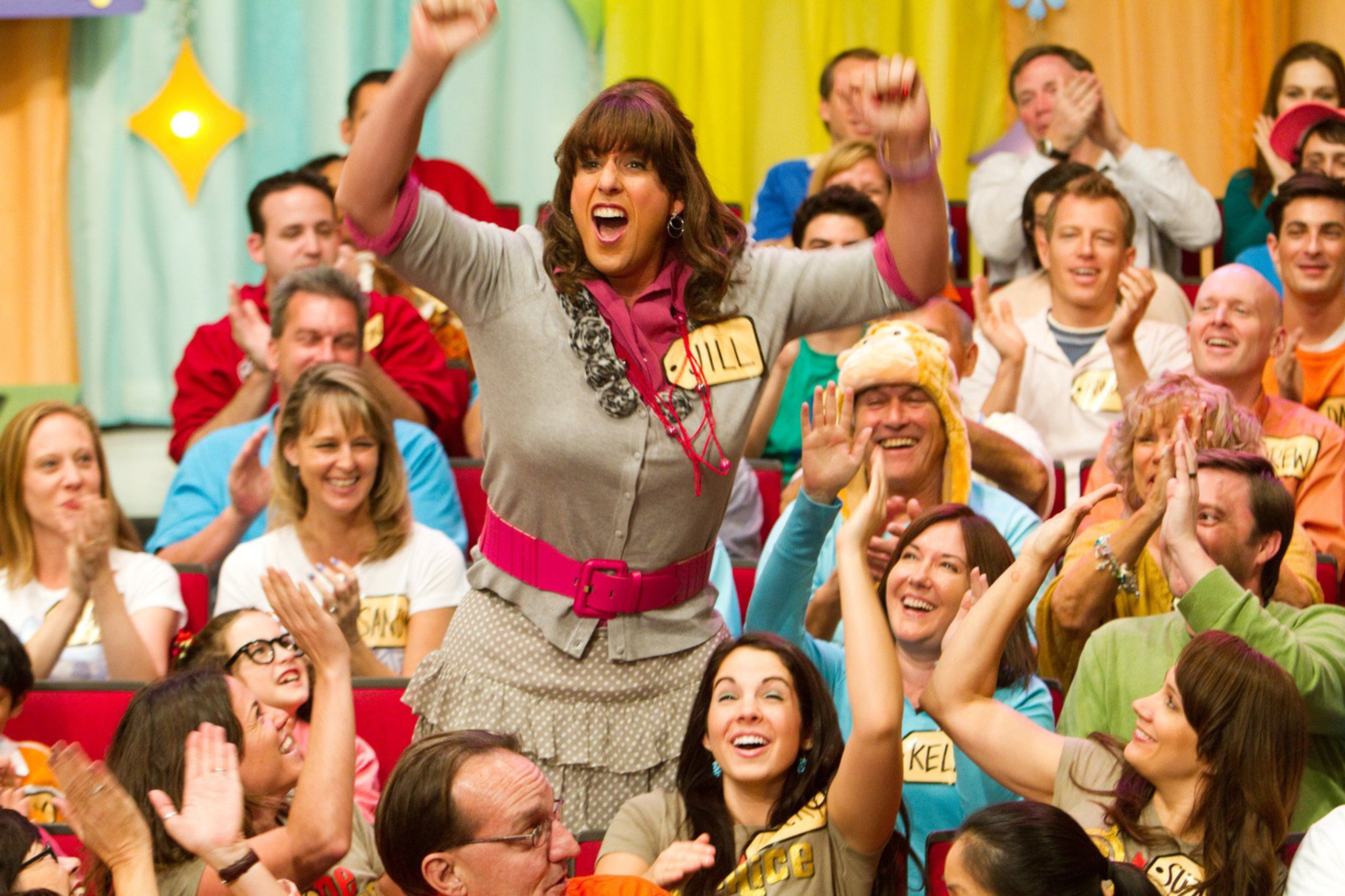
Tracy Bennett / Columbia Pictures / Courtesy Everett Collection
The film was massively panned, but it doesn't look like Sandler ever responded to criticism. Ahead of the film, Sandler said appearing in drag as a kid got him the biggest laughs. "I'd do John Wayne and a couple of other old-timers pretty well when I was a kid, but then I'd put the babushka [scarf] on my head and come in as my grandmother — and that always brought the house down."
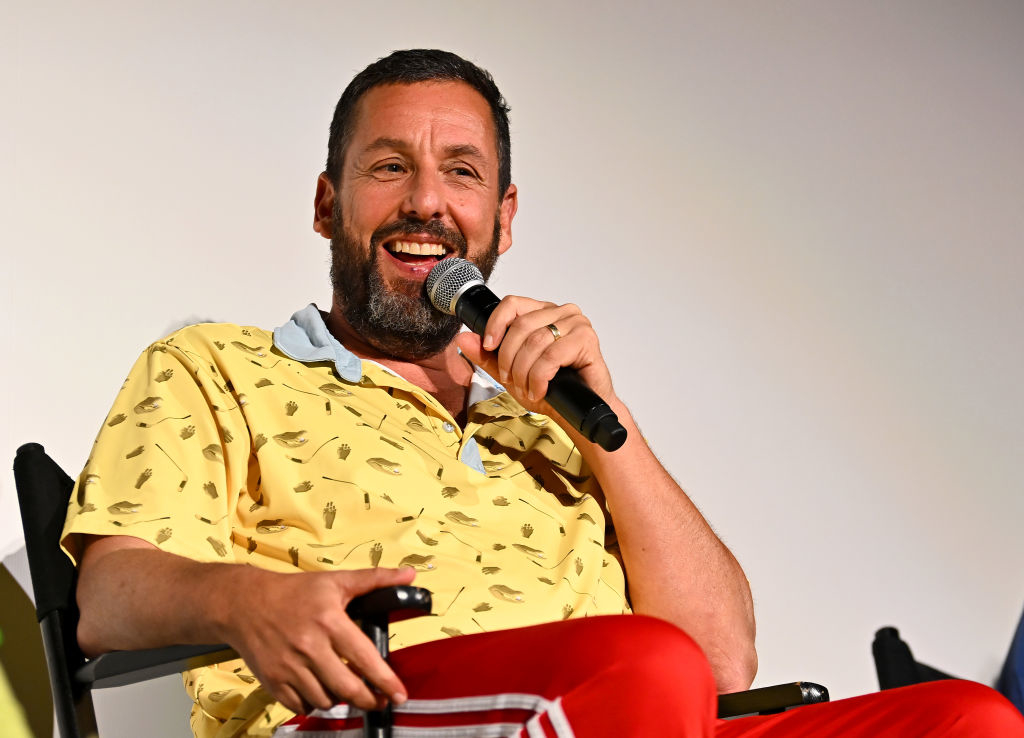
Roy Rochlin / Getty Images for Netflix
18. In a far, far worse example, Jeremy Saville plays a white man posing as a Black woman in order to get a job in the film Loqueesha. Saville is not only the star but also the writer and director of the film.
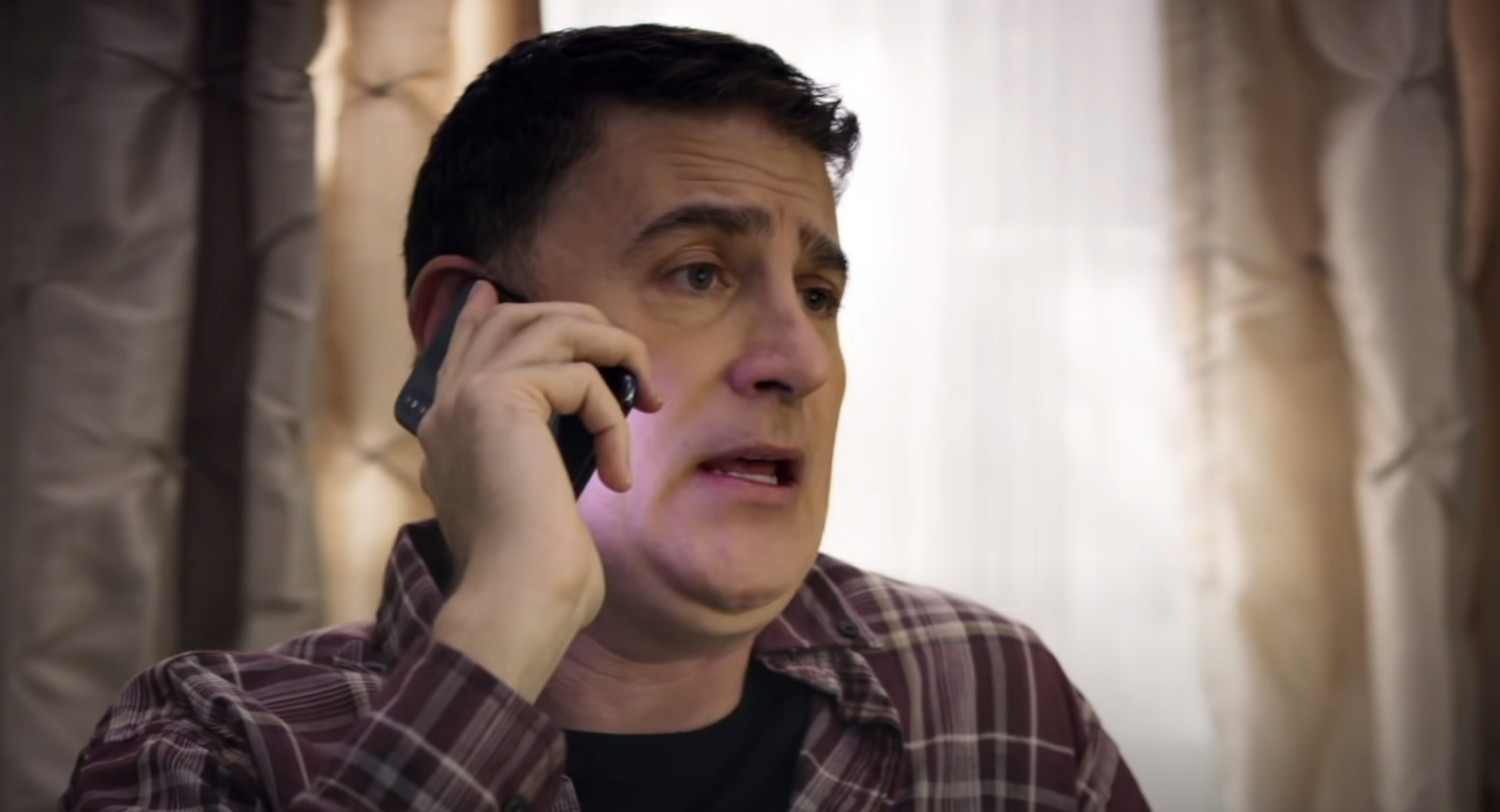
Indie Rights (Amazon Prime Video)
After the trailer sparked backlash, Saville said people were jumping to conclusions prematurely. "When people watch the entire film, they will see that there is much more here than meets the eye," he said. "Virtually all the comments I've seen online are addressed directly in the film from a variety of perspectives." He also pointed to an SNL skit featuring Louis C.K. "performing a similar character," saying CK's performance was met with laughter and applause."

Michael S. Schwartz / WireImage via Getty Images
19. While Dallas Buyers Club was critically acclaimed, and Jared Leto won an Oscar for his portrayal of a transgender woman in the film, many felt Leto taking the role was problematic because a transgender actor should've been cast. Leto disagreed.
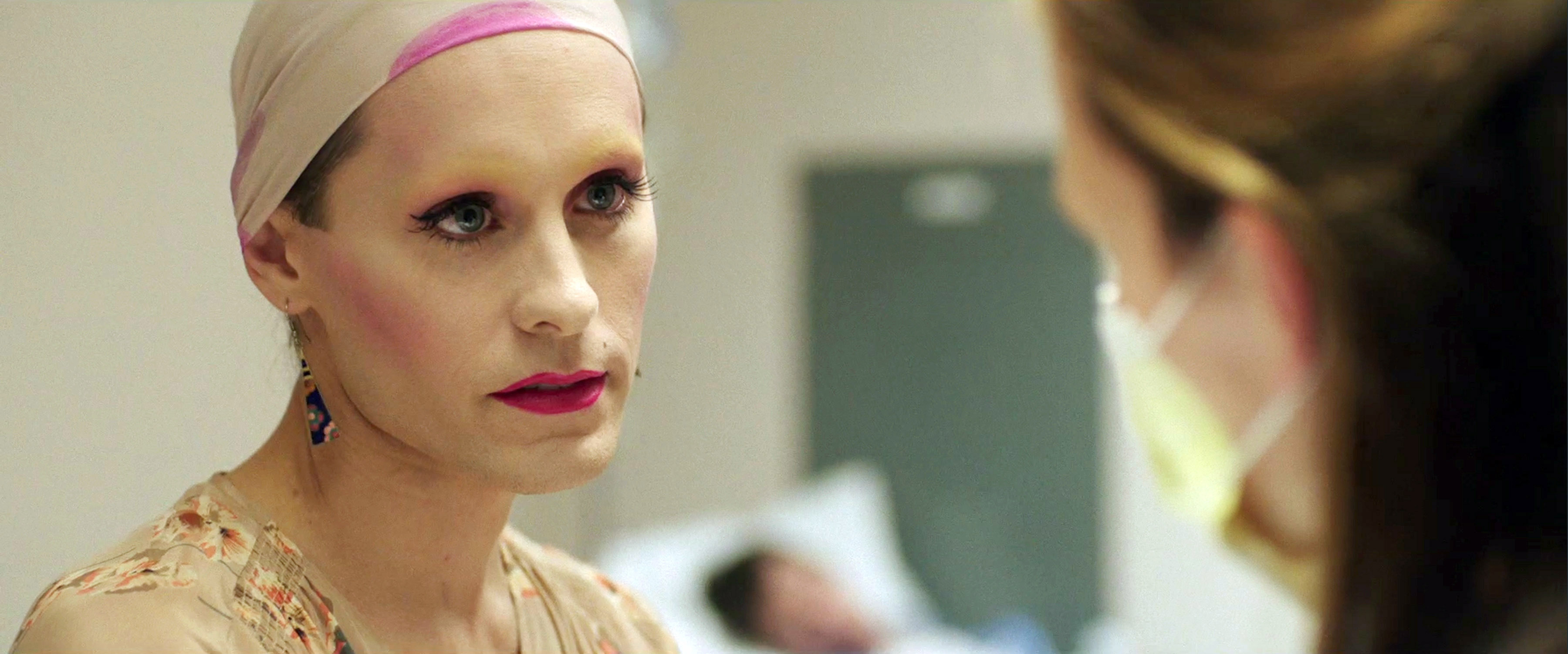
Anne Marie Fox/Focus Features / courtesy Everett Collection
Speaking to a heckler who said he didn't deserve awards for the role at a Q&A, Leto replied, "Because I’m a man, I don’t deserve to play that part? So you would hold a role against someone who happened to be gay or lesbian — they can't play a straight part? ... Then you've made sure people that are gay, people that aren't straight, people like the Rayons of the world would never have the opportunity to turn the tables and explore parts of that art."
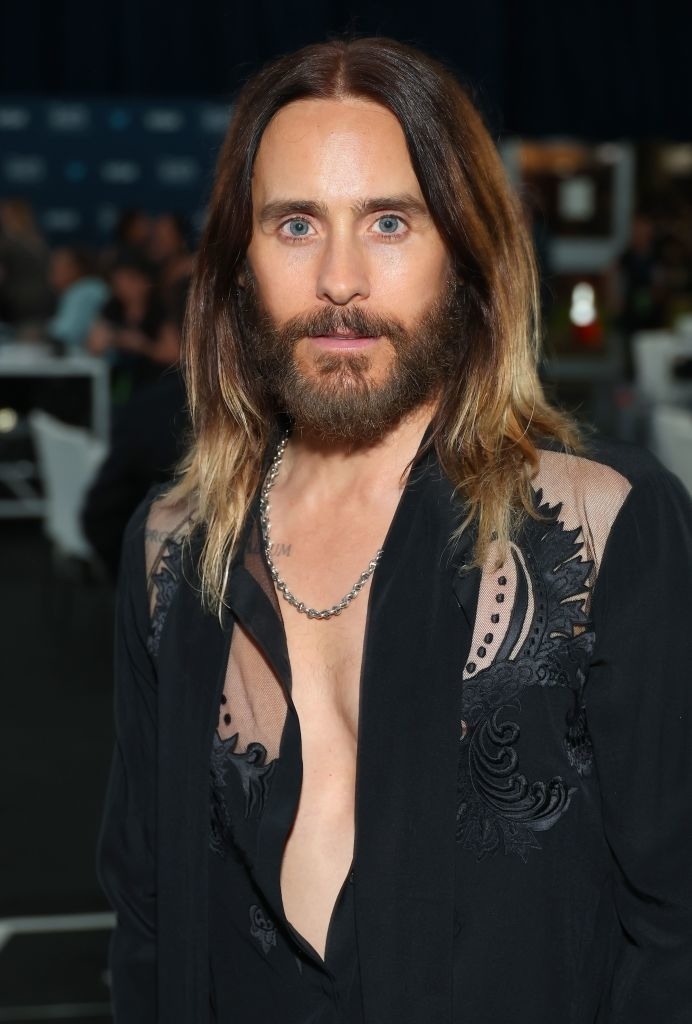
Leon Bennett / Getty Images for Disney
20. Jenette Goldstein had a similar justification for playing a Latino woman in Aliens. Goldstein, who is Jewish and of Russian, Moroccan, and Brazilian descent, had her skin darkened with makeup for the role. Years later, she said that there are Latino Jews and suggested that you shouldn't only be able to play your own ethnicity: "I have never been cast, or given the opportunity to audition for a short, freckle-faced Jewish girl who is half-Russian and half-Moroccan and Brazilian. So I don't think I would work very much if that's all I was able to read for."
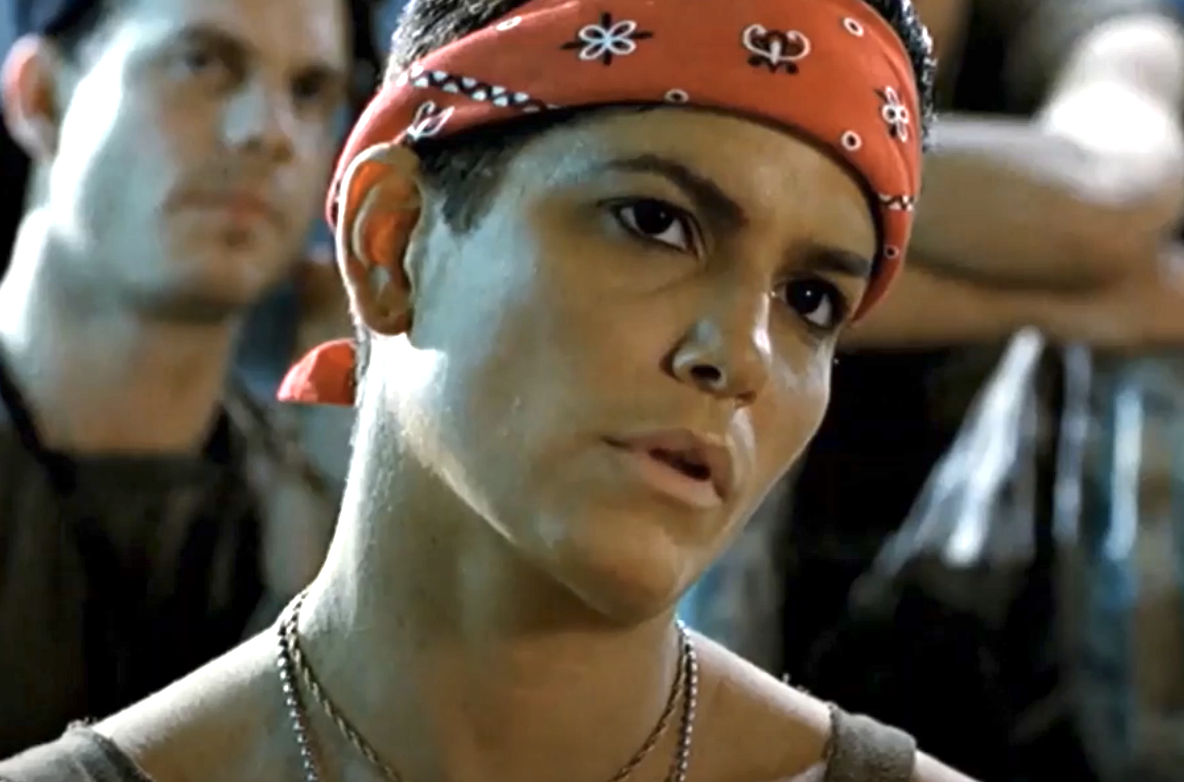
20th Century Fox
She did acknowledge that the same casting probably wouldn't happen now and that "there should be, obviously, roles available in a wide range of ethnicities."
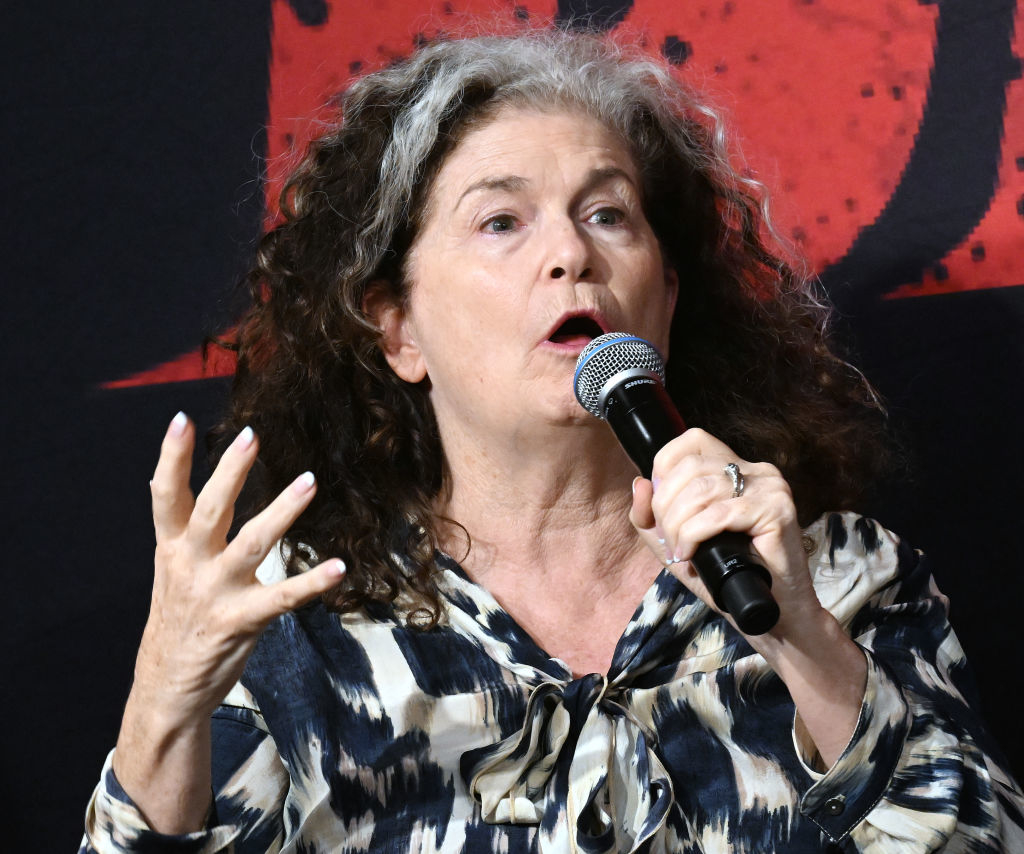
Albert L. Ortega / Getty Images via Getty Images
21. Hilary Swank similarly stopped just short of expressing regret. Many years after winning an Oscar for her portrayal of trans man Brandon in Boys Don't Cry in 1999, she said the same choice would not and should not have been made today. "Trans people weren't really walking around in the world saying, 'Hey, I'm trans' [in 1999]. Twenty-one years later, not only are trans people having their lives and living, thankfully, [although] we still have a long way to go in their safety and their inclusivity, but we now have a bunch of trans actors who would obviously be a lot more right for the role and have the opportunity to actually audition for the role."
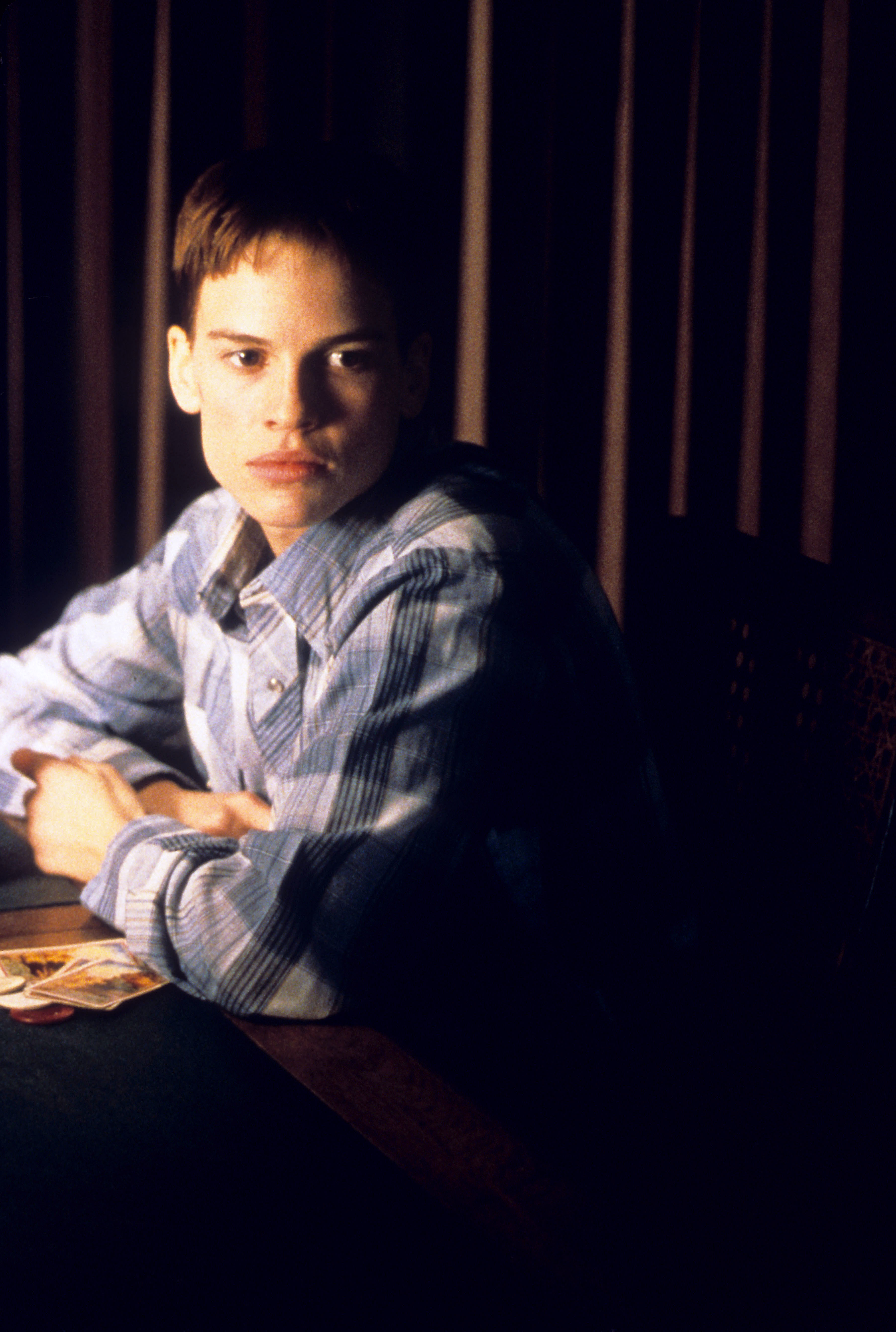
Fox Searchlight Pictures / courtesy Everett Collection
However, like Leto and Goldstein, she also stated, "I also feel like actors are actors. We are supposed to play different people and I would like to hope trans people are getting the opportunity to play non-trans people as well."
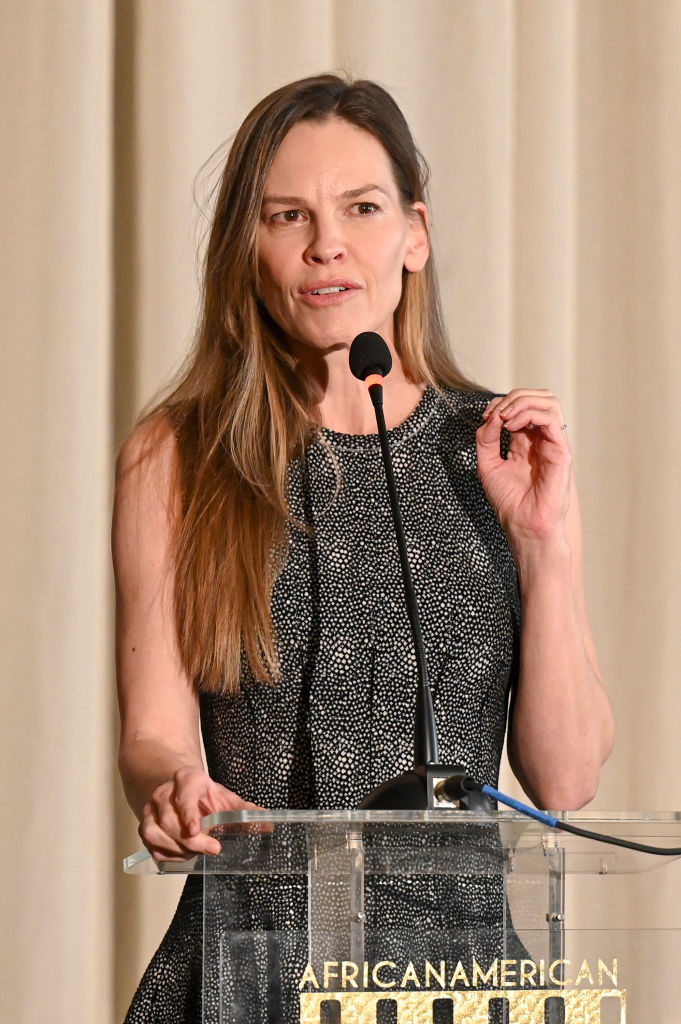
Gilbert Flores/Variety via Getty Images
Now, let's move on to examples of actors who have expressed regret for taking on an offensive or problematic role.
22. To play Rosemary in Shallow Hal, Gwyneth Paltrow donned a fat suit — which itself is problematic. Even worse, the plot of the film was about a man who's hypnotized to see women as how beautiful they are on the inside. He falls for Paltrow, seeing her as the left image, when actually she looks like the right image. When he realizes her weight, he is disgusted, though he eventually reconciles with her in the end. The whole thing is extremely anti-fat and basically posits that fat people are disgusting and unattractive.
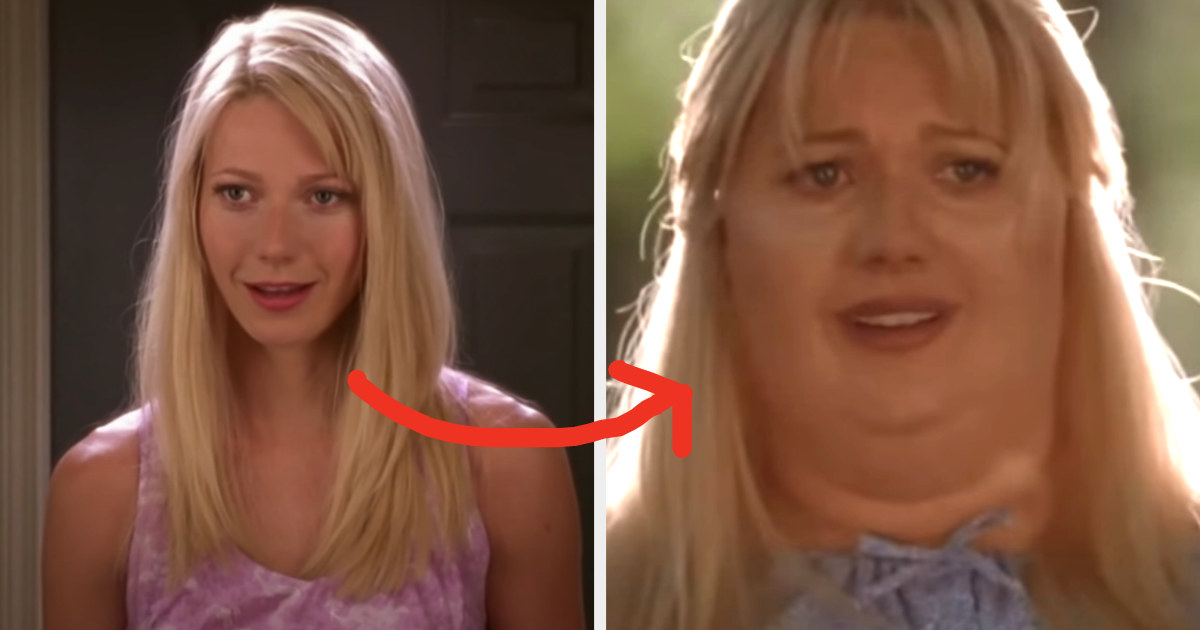
20th Century Fox
Paltrow has since called the film "a disaster." Paltrow said she started to realize how problematic the film was when she first tried on the fat suit and noticed no one would look at her, making her feel "humiliated." She later called it her least favorite performance in an interview and said she regretted it.
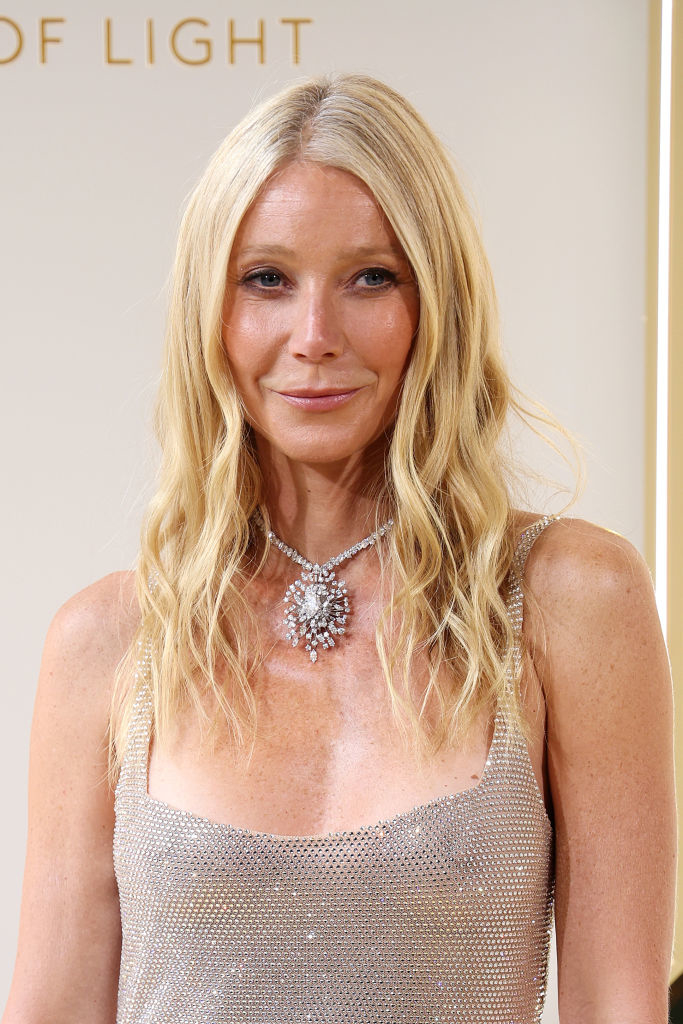
Vittorio Zunino Celotto / Getty Images
23. Rooney Mara, a white actor, portrayed Tiger Lily, a Native American character, in Pan. She later said she regretted taking the role after all the backlash: "There were two different periods; right after I was initially cast, and the reaction to that, and then the reaction again when the film came out. I really hate, hate, hate that I am on that side of the whitewashing conversation. I really do. I don’t ever want to be on that side of it again. I can understand why people were upset and frustrated.”
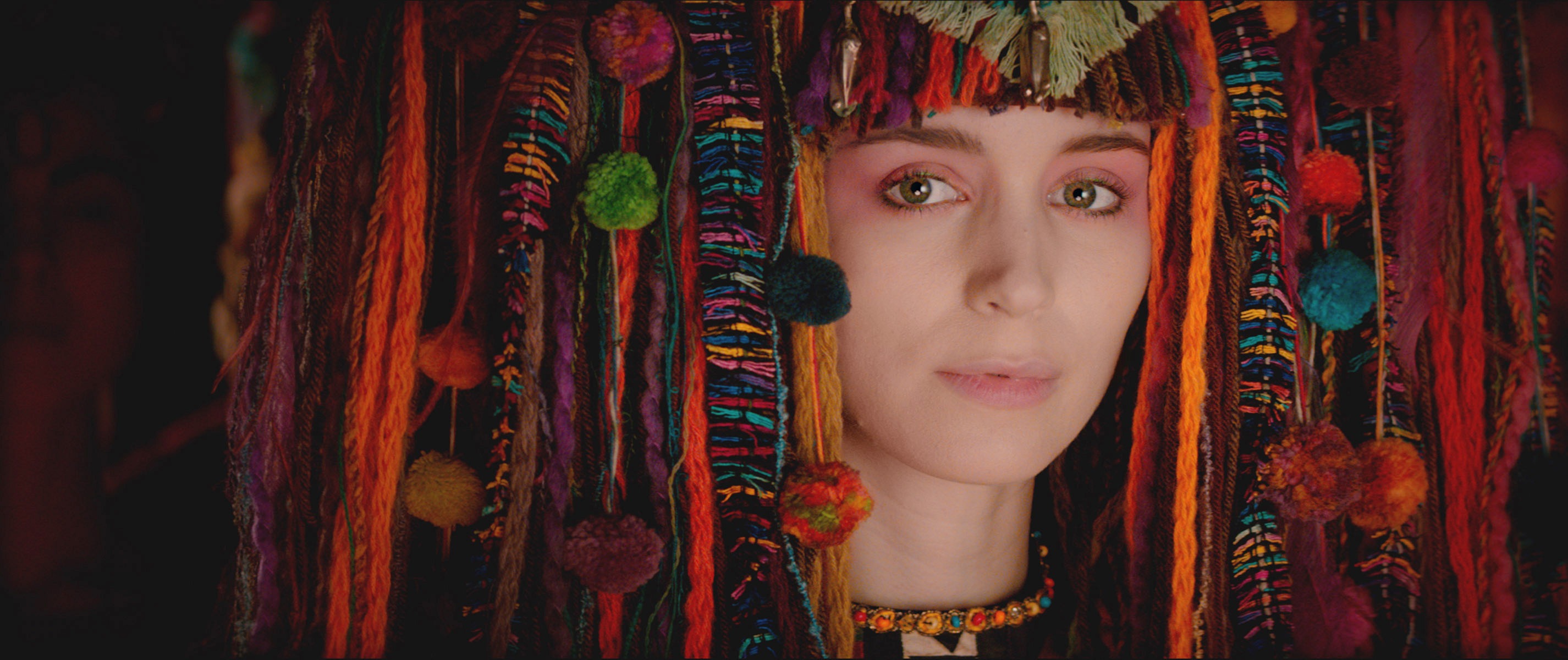
Warner Bros. Pictures/Courtesy Everett Collection
According to Warner Brothers, they wanted to create a world for the film that was "multi-racial/international — and a very different character than previously imagined." However, many pointed out that the four main characters were all white.
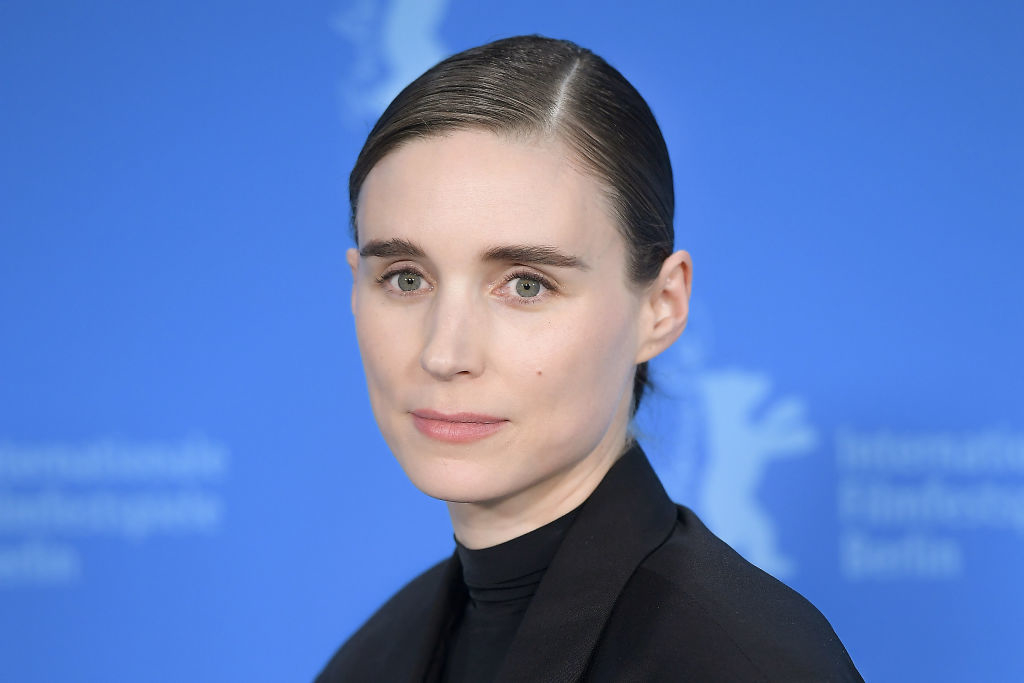
Dominique Charriau / WireImage via Getty Images
24. Jake Gyllenhaal was a little more vague, but we'll give this one to him since he didn't defend his casting. In yet another example of whitewashing, Jake Gyllenhaal was cast as the Iranian character Prince Dastan in Prince of Persia: The Sands of Time. Nine years later, Gyllenhaal reflected on the role and the controversy, suggesting it's made him more careful about what roles he accepts.
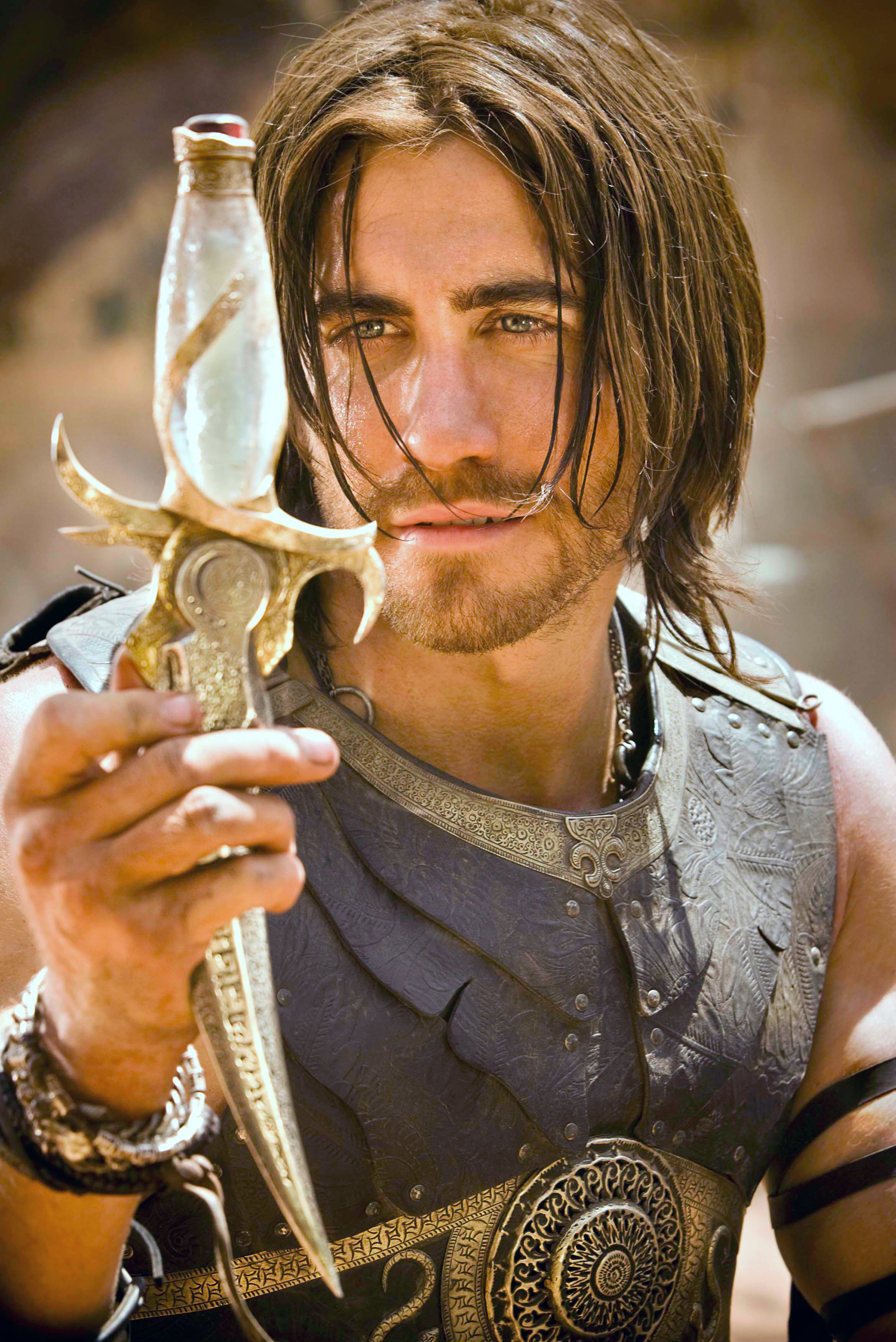
Andrew Cooper/Walt Disney Studios Motion Pictures/Courtesy Everett Collection
"I think I learned a lot from that movie in that I spend a lot of time trying to be very thoughtful about the roles that I pick and why I'm picking them," he said. "And you're bound to slip up and be like, 'That wasn't right for me,’ or 'That didn't fit perfectly.' There have been a number of roles like that. And then a number of roles that do."
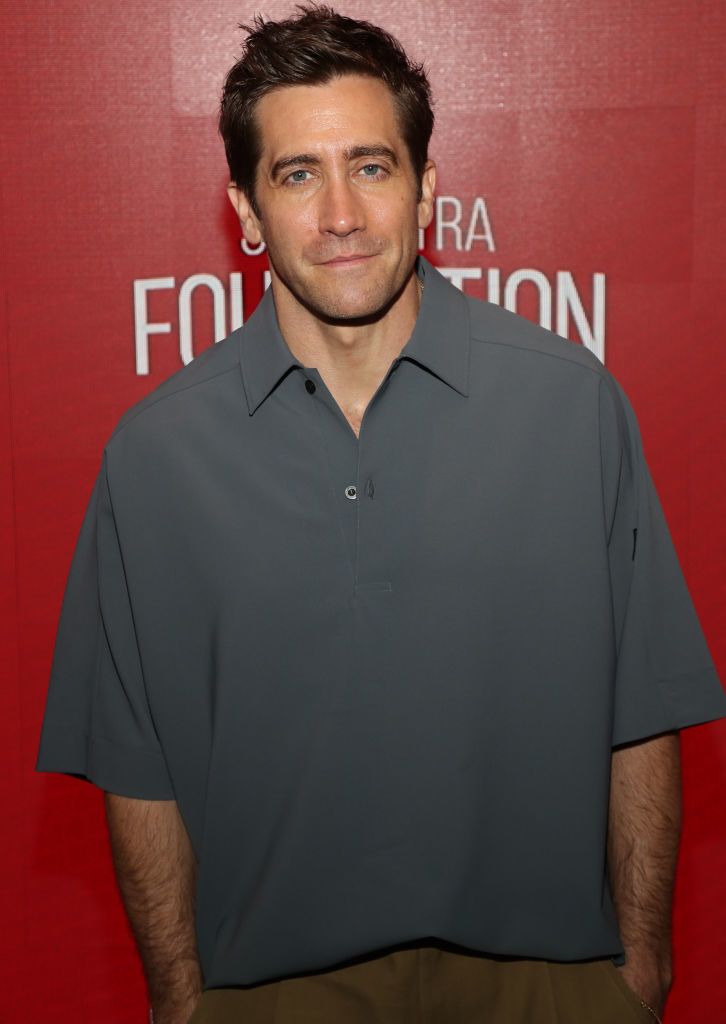
Manny Carabel / Getty Images
25. While Eddie Redmayne's performance in The Danish Girl was praised (and earned him an Oscar nomination), many criticized him for taking the role, saying it should have gone to a transgender actor. The film was also criticized for not accurately following the real-life story of Lili Elbe or paying her enough respect, existing instead as Oscar bait.
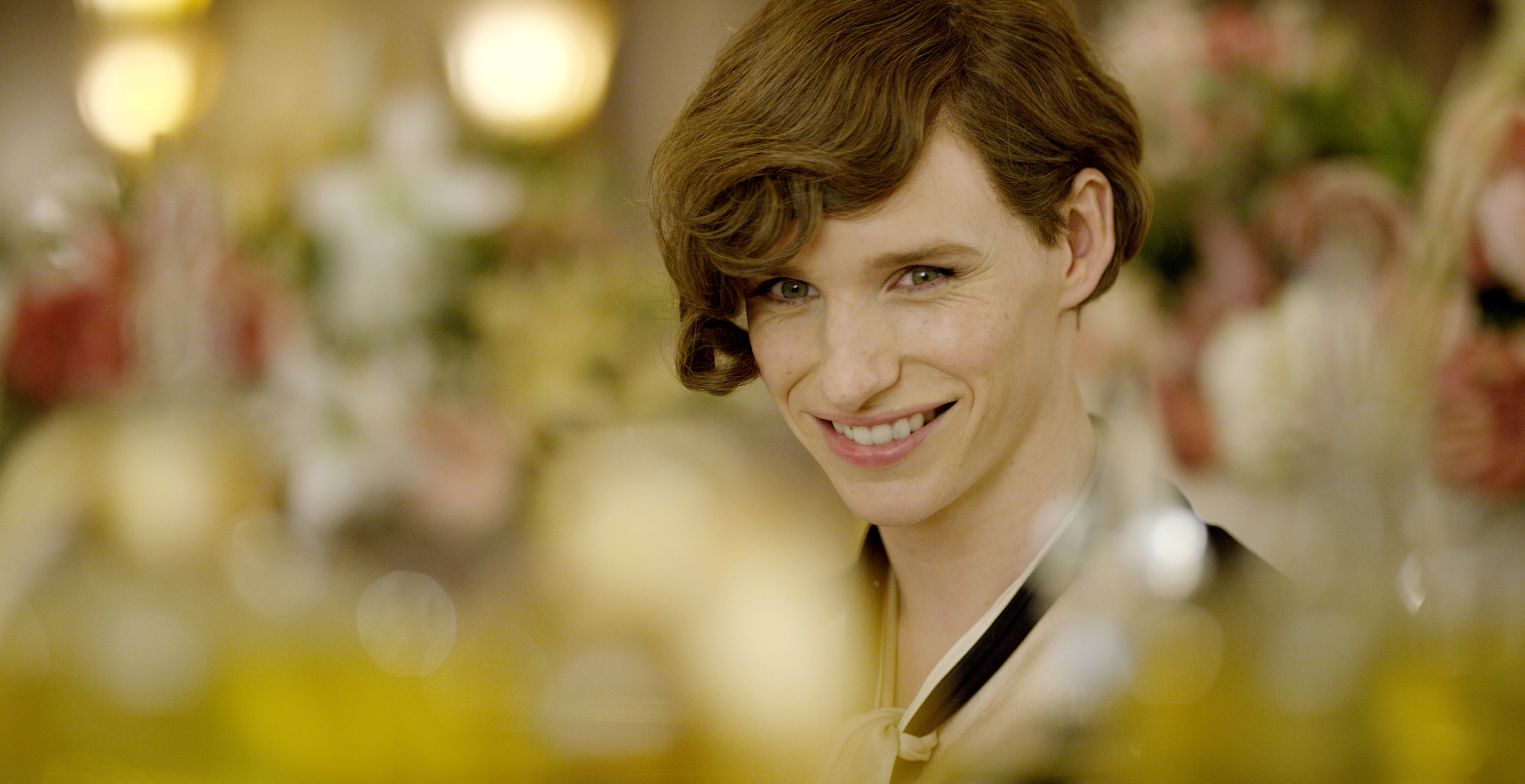
Agatha A. Nitecka / Focus Features / Courtesy Everett Collection
Redmayne later said he regretted taking the role, saying, "I made that film with the best intentions, but I think it was a mistake. The bigger discussion about the frustrations around casting is because many people don't have a chair at the table. There must be a leveling, otherwise, we are going to carry on having these debates," he continued, addressing feedback that the role should've gone to a trans actor.
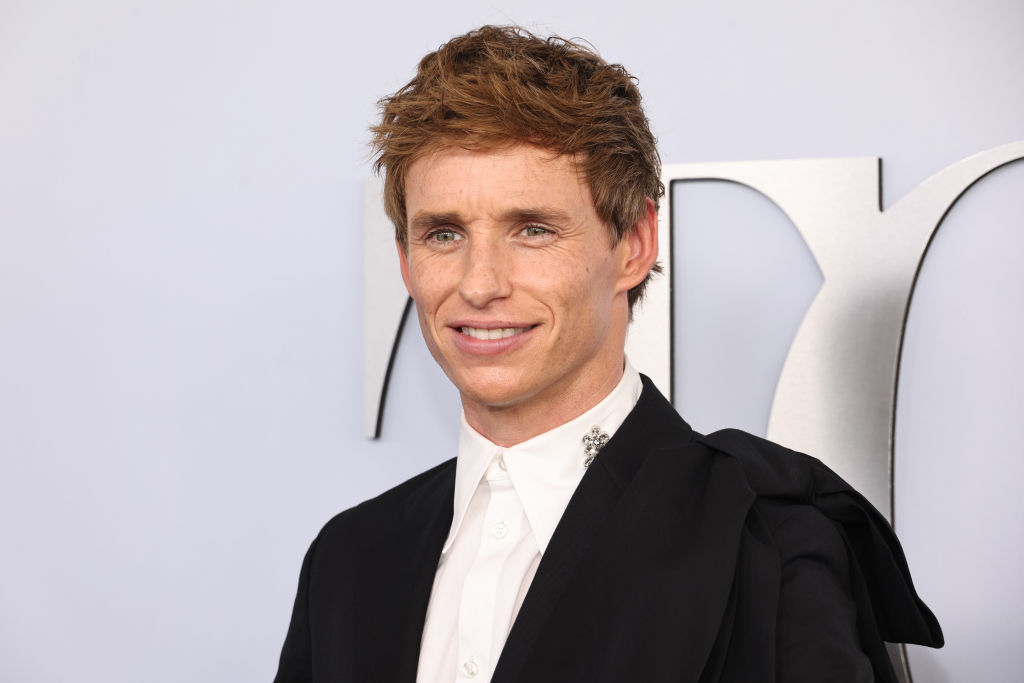
Jamie Mccarthy / WireImage via Getty Images
26. Viola Davis expressed regret for her role in The Help, for which she was also nominated for an Oscar. While she emphasized that she had a great experience on set, she said, "I just felt that at the end of the day that it wasn't the voices of the maids that were heard. I know Aibileen. I know Minny. They're my grandma. They're my mom. And I know that if you do a movie where the whole premise is, I want to know what it feels like to work for white people and to bring up children in 1963, I want to hear how you really feel about it. I never heard that in the course of the movie."
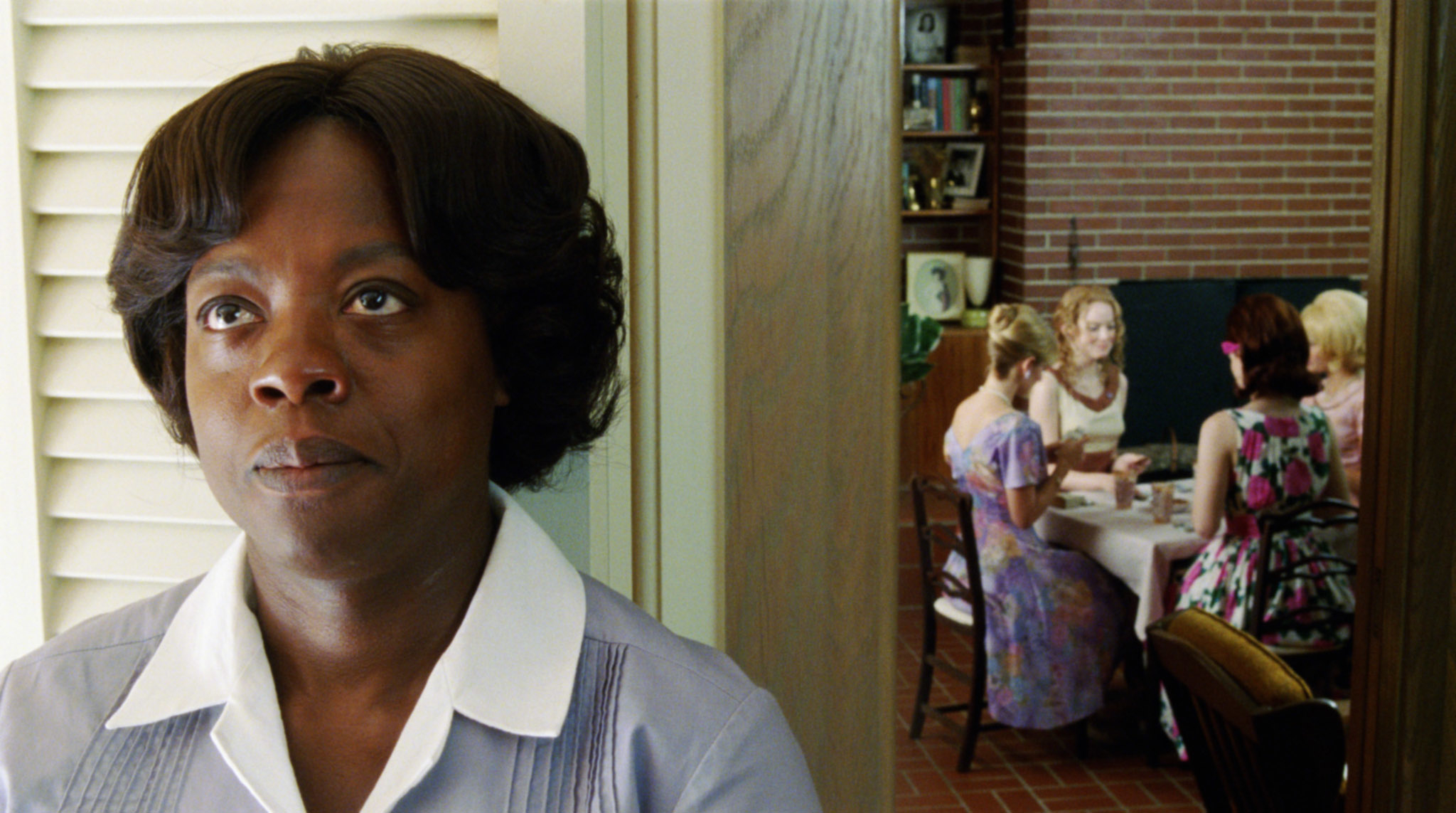
Walt Disney Studios Motion Pictures/Courtesy Everett Collection
27. And finally, Emma Stone was criticized for appearing in Aloha as a character of Chinese and Hawaiian descent (the character was also half-white). After backlash, writer-Director Cameron Crowe apologized, though he appeared to defend the casting, writing, "I have heard your words and your disappointment, and I offer you a heart-felt apology to all who felt this was an odd or misguided casting choice. As far back as 2007, Captain Allison Ng was written to be a super-proud ¼ Hawaiian who was frustrated that, by all outward appearances, she looked nothing like one."
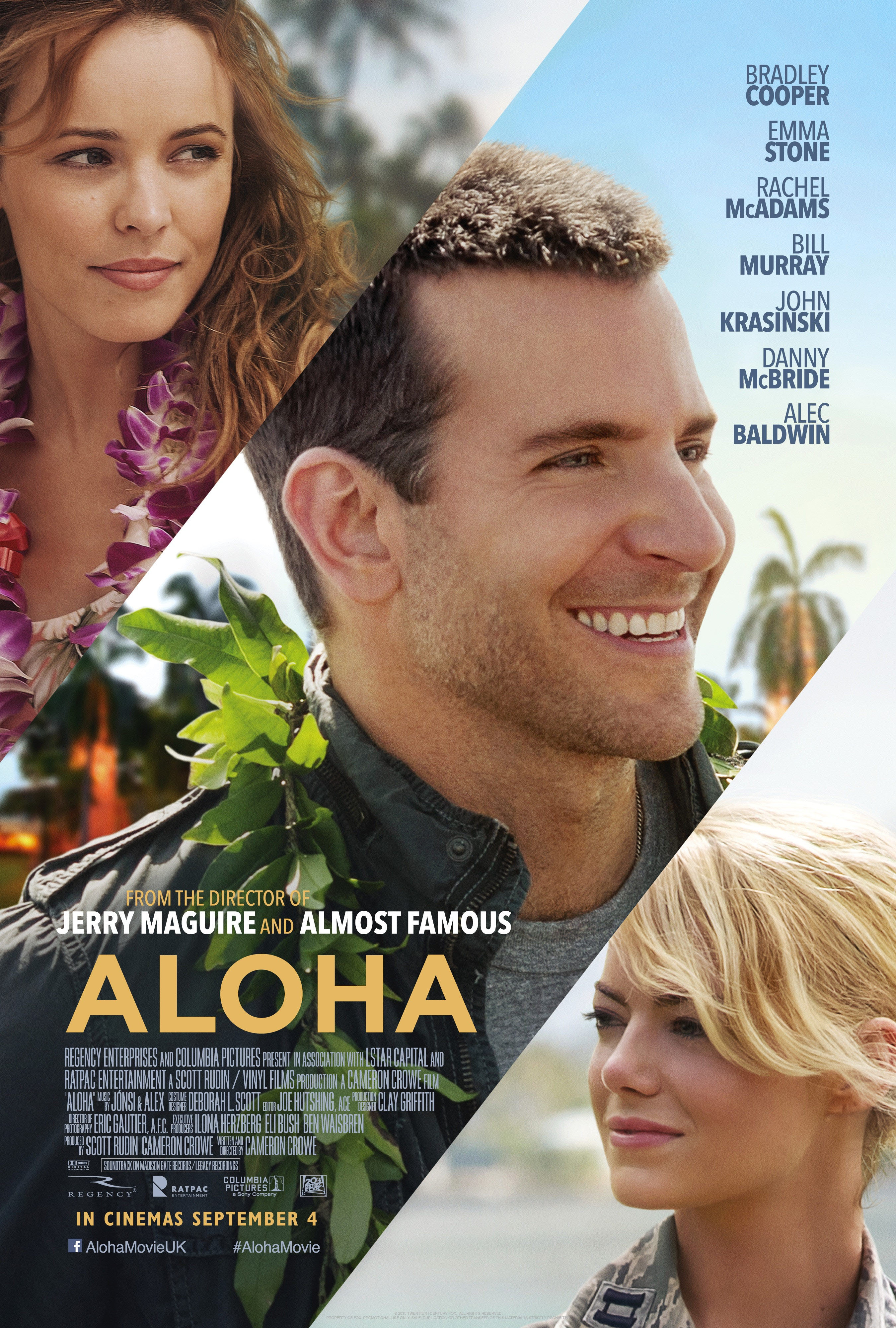
Columbia Pictures / courtesy Everett Collection
"A half-Chinese father was meant to show the surprising mix of cultures often prevalent in Hawaii. Extremely proud of her unlikely heritage, she feels personally compelled to over-explain every chance she gets. The character was based on a real-life, red-headed local who did just that," Crowe continued.
Emma Stone echoed these remarks, saying, "The character was not supposed to look like her background which was a quarter Hawaiian and a quarter Chinese." However, she said she'd since "learned on a macro level about the insane history of whitewashing in Hollywood and how prevalent the problem truly is," adding, "It's ignited a conversation that's very important." At the 2019 Golden Globes, Stone memorably shouted out, "I'm sorry!" after Sandra Oh made a joke about her casting in Aloha.
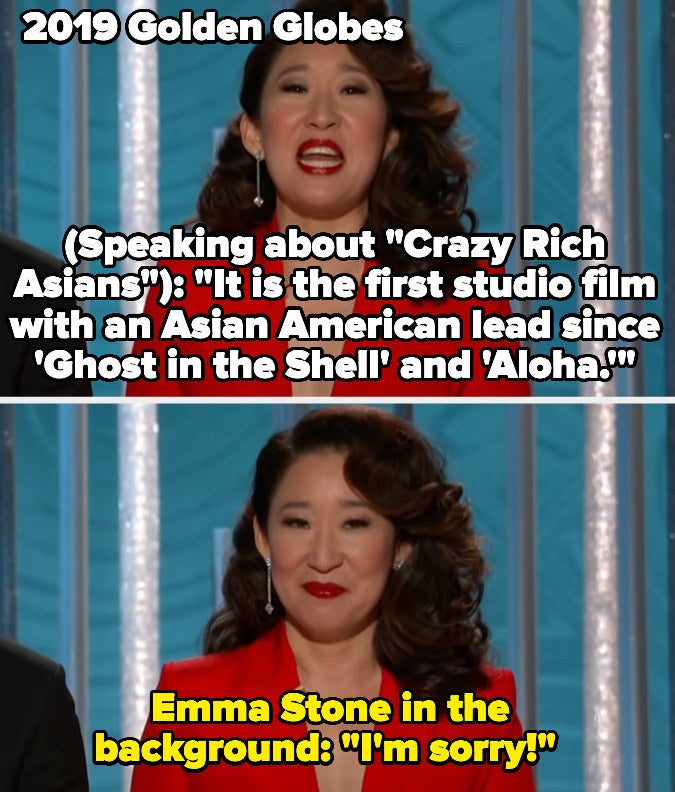
NBC / Neal Preston / Columbia Pictures / courtesy Everett Collection
.png)
 3 weeks ago
2
3 weeks ago
2









 English (US) ·
English (US) ·